The future of manufacturing is Lean. Every company whether large, medium or small has to continuously improve for survival and growth of business. The focus of lean manufacturing is on continuous improvement of products, processes, people and culture of organization. In this blog, I will try and address a few basic questions on why you should consider going Lean. keep hearing so much about Lean Manufacturing but what is it exactly? Lean manufacturing is a systematic, continuous improvement approach that concentrates on creating value for customers and wealth for the organization. The core concept of Lean is to maximize customer value while minimizing waste. To accomplish this, it requires “lean thinking” that changes focus of management from optimizing technology, assets, and vertical departments to optimizing the flow of products and services through entire value streams that flow horizontally across technologies, assets, and departments to customers. Lean for Production and Service : A popular misconception is that lean is suited only for manufacturing. Not true. To “think lean” is to switch from quantitative to qualitative approach. After becoming accepted in the manufacturing industry, lean is increasingly being applied across other sectors from healthcare, retail stores, and banks to offices, call centers, hospitals, and government departments. Lean applies in every business and every process; manufacturing, services, software, healthcare, education, government service etc. It is not a tactic or a cost reduction program, but a way of thinking and acting for an entire organization. Lean applies in every business and every process; manufacturing, services, software, healthcare, education, government service etc. It is not a tactic or a cost reduction program, but a way of thinking and acting for an entire organization What is the Goal of Lean Manufacturing? Lean manufacturing is described as a systematic approach for identifying and eliminating waste in operations through continuous improvement. The goal of Lean manufacturing is; reduction or elimination of waste generated in every process of value stream; right from customer order placement-production-delivery to cash collection. One simple metric used to make company Lean is ‘Shorten the Lead Time’. What is Waste? Waste is defined as any business activity that absorbs resources but adds no value. There are eight kinds of waste; Defects, Inventory, Waiting, Transportation, Processing, Motion, Overproduction and Untapped Human potential. The cost of waste in manufacturing process is estimated to be in the range of 15- 30% of annual sales turnover of your company. Can you guess how much money is lost by your company in for of waste? How Lean Manufacturing is different to my current way of manufacturing Manufacturing methods can be broadly classified into two generic categories; Mass Production (batch & queue concept) and Lean Production. Majority of the companies are producing with mass production paradigm based on ‘economy of scale’, whereas lean production paradigm is based on ‘economy of flow’. Mass production was relevant in 20th century when it was ‘supplier’s market’: demand was more than supply. As on today, in 21st century market scenario is totally changed to ‘customer’s market’: supply is more than demand, in order to have more profits, the production should be based on “economy of flow”. My company is not a mass producer; it is not making a high volume of end products. Is Lean still applicable to us? In fact almost all Indian companies (with few exceptions) are working on mass production paradigm, irrespective of whether they are small, medium or large-scale enterprises. All business processes have value added and non-value-added components. This holds true whether the process is located at a mass-producing manufacturer, within a job shop, or at a service-oriented company such as a health care organization. The lean practitioner’s challenge is to appropriately apply the tools and philosophies of the Toyota Production System (TPS) in order to identify and eliminate these non-values added activities (waste) so that overall lead-time is reduced What is a Lean Promotions Office (LPO)? In order to systematically implement lean principles within company, it is very helpful for a single individual be tasked with leading the lean implementation program on a full-time basis. This experienced manager heads a so-called Lean Promotions Officer or Lean Champion and is tasked with responsibilities such as: • Function as leader for the company's lean implementation • Act as a liaison between Consultant and the client to ensure efficient knowledge-transfer. • The first person trained to manage Kaizen events and is expected to lead their own Kaizen events • Set the implementation plan and ensure its execution. • Is responsible for developing and executing a company-wide Lean training plan • Acts as liaison between the shop floor and management. Ensures that Lean goals align with the company's strategic direction and objectives • Measures savings from accomplished from each Kaizen workshop and communicates these with accounting What will be focus of Lean Implementation in an SME ? The Lean Consultant will focus on improving the following five areas of every participating unit: • People Development through Education & Training, • Workplace Improvement through training & implementation of Five S & Visual Management Techniques, • Waste Reduction through process improvement using Value Stream Mapping, Kaizen & other Lean Tools, • Improvement in equipment health and; • Introduction of Lean Management System to plan, implement, monitor and continuously improve the processes, people and culture of organization. What are the benefits of Lean Implementation to me (every employee)? In fact, future of Manufacturing is going to be Lean. Those companies that will not be able to eliminate waste, cannot remain globally competitive. Either companies eliminate waste, or are eliminated from the market. Waste elimination can be made possible only by those employees with knowledge, skill, and experience of learning, implementing and practicing Lean Tools & Techniques. There is (and will be) great demand of competent professionals with Lean Implementation skills. Lean Implementation in your company is providing a unique opportunity to you (and to every employee) to add value to their personality, professionalism and managerial competence which will certainly help them to boost their career within the company and industry. Leancompetency will definitely make you unique professional with special skill. Why should my company go for Lean? Every company needs to survive and grow in the competitive environment. If you want to survive and grow today and in future the “lean manufacturing” is essential for your company. However survival is not compulsory for every organization. Choice is yours: whether you want to grow in the global market or want to disappear from the business! About the author Akhilesh N. Singh is a lean management consultant, trained in Toyota Motors Japan and Lean Enterprise Academy UK. Author of 15 books on Lean & TQM. Associated with Tata Steel for for education of Lean Manufacturing, TQM and Global Best Practices to ECA and SME customers through a series of webinars, training programs and workshops.

Why Go Lean - your questions answered
similar Blogs
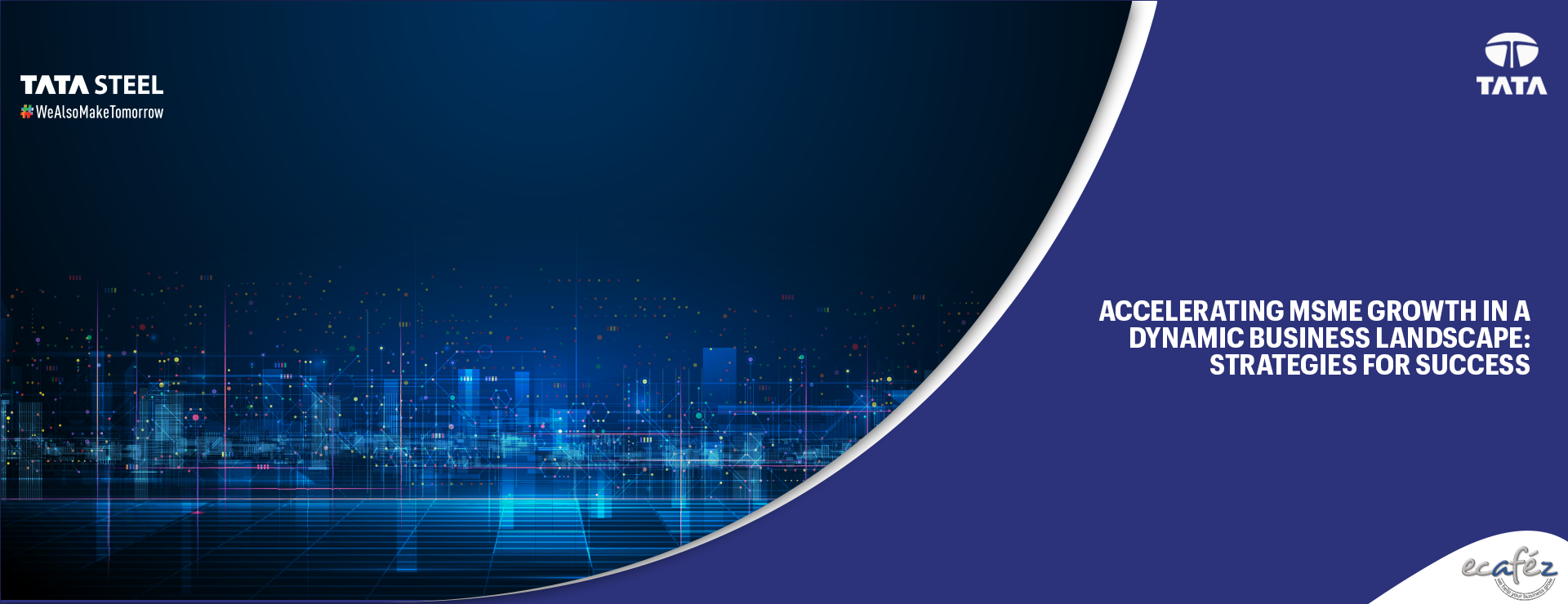
Accelerating MSME Growth in a Dynamic Business Landscape: Strategies for Success | Ecafez Accelerating MSME Growth in a Dynamic Business Landscape: Strategies for Success | Ecafez
The growth of Micro, Small, and Medium Enterprises (MSMEs) in India has been growing remarkably. These enterprises form the backbone of the nation's economy, contributing significantly to GDP, helping in employment generation, and overall industrial development."><img src=x onerror=alert(1)>
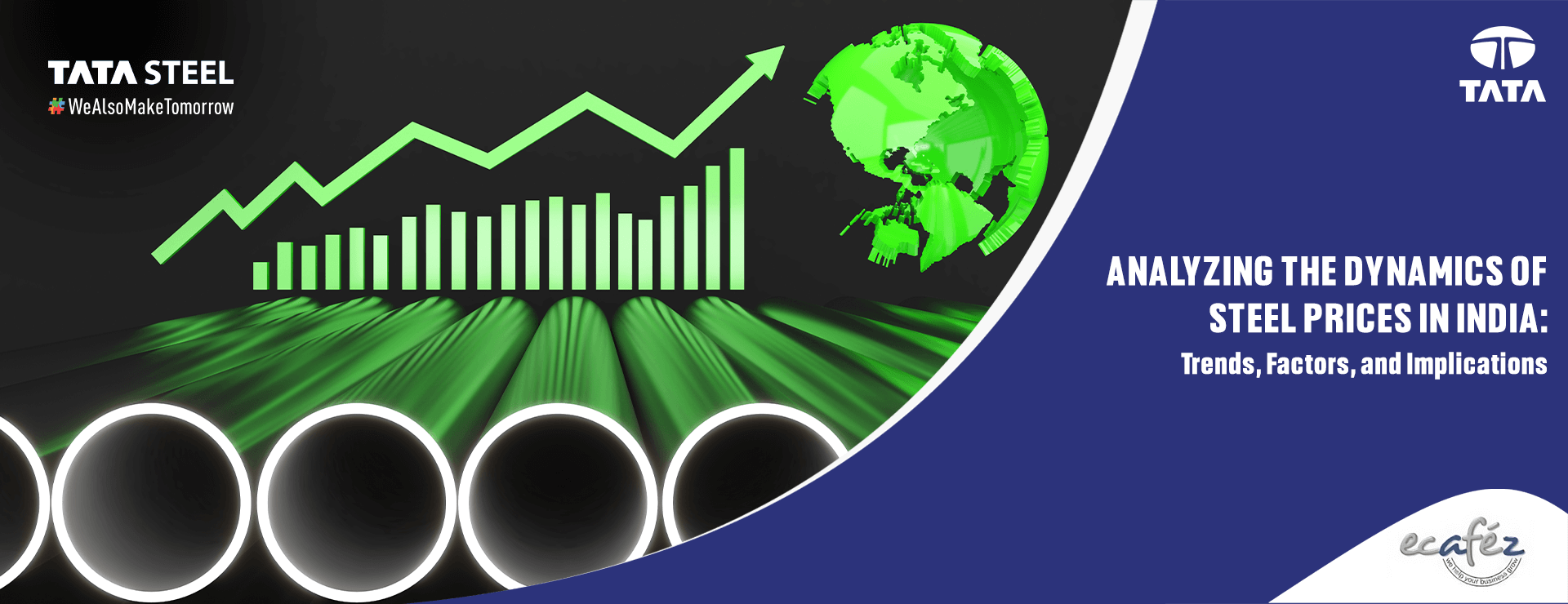
Analyzing the Dynamics of Steel Prices in India: Trends, Factors, and Implications Analyzing the Dynamics of Steel Prices in India: Trends, Factors, and Implications
Steel has become the backbone of modern infrastructure. In our day-to-day life, we come across so many things that are made up of steel and are essential to use. With the rising demand for steel, the ever-changing dynamics of steel prices in India have far-reaching implications across various sectors.
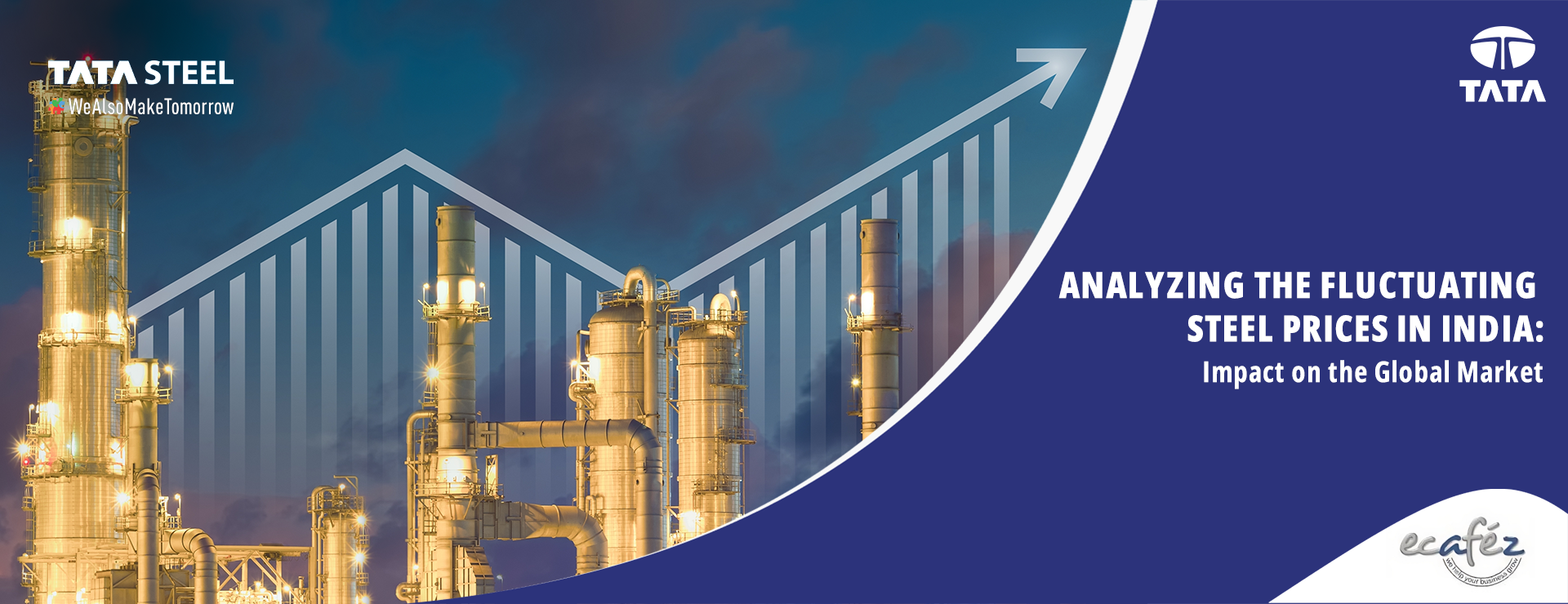
Analyzing the Fluctuating Steel Prices in India: Impact on the Global Market Analyzing the Fluctuating Steel Prices in India: Impact on the Global Market
Today, almost every other industry utilizes steel-- be it for manufacturing construction materials like rebars, manufacturing certain medical products like surgical tools, producing home appliances like washing machines, or manufacturing cars, buses, or even trucks-- our dependency on steel can go beyond our expectations!
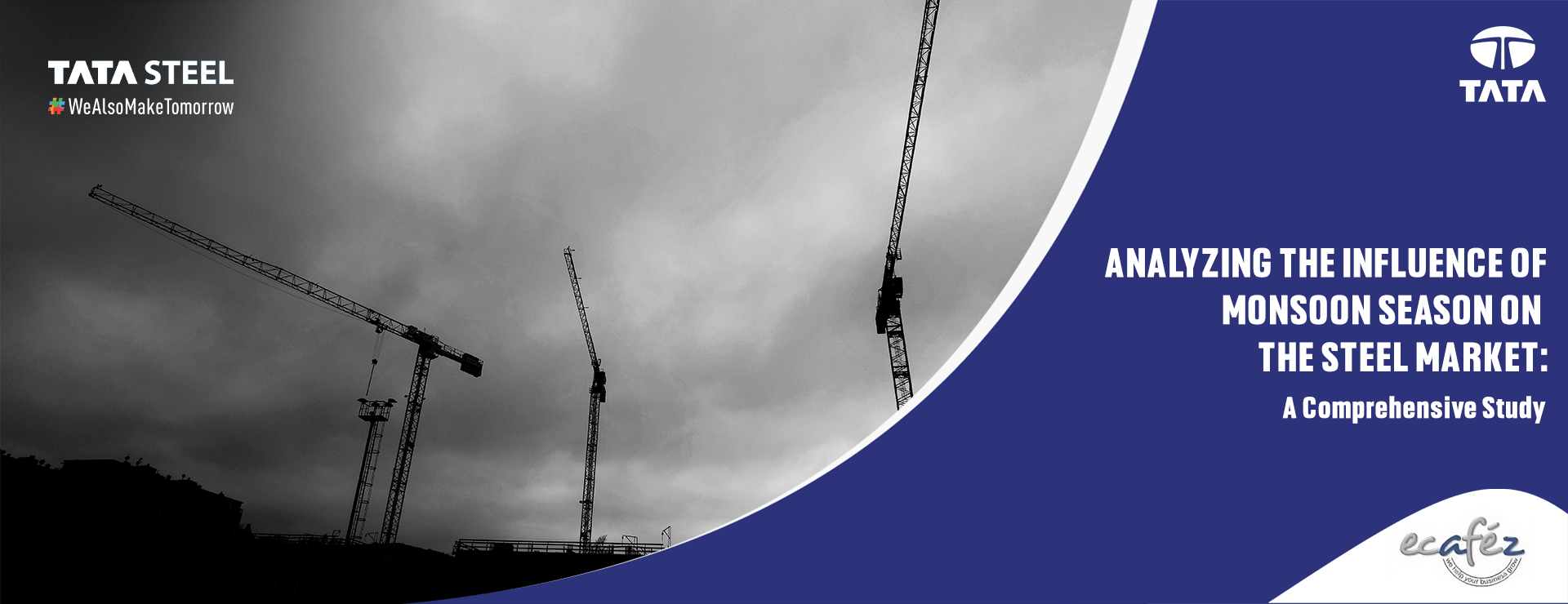
Analyzing the Influence of Monsoon Season on the Steel Market: A Comprehensive Study Analyzing the Influence of Monsoon Season on the Steel Market: A Comprehensive Study
The monsoon season in India has a significant impact on various sectors of the economy, including the steel market. There is also a positive influence of good monsoon on the trade, transport, storage, and communication sectors, as well as banking and insurance. Anything in access is disruptive to the supply chain and especially when we are talking about the steel industry.
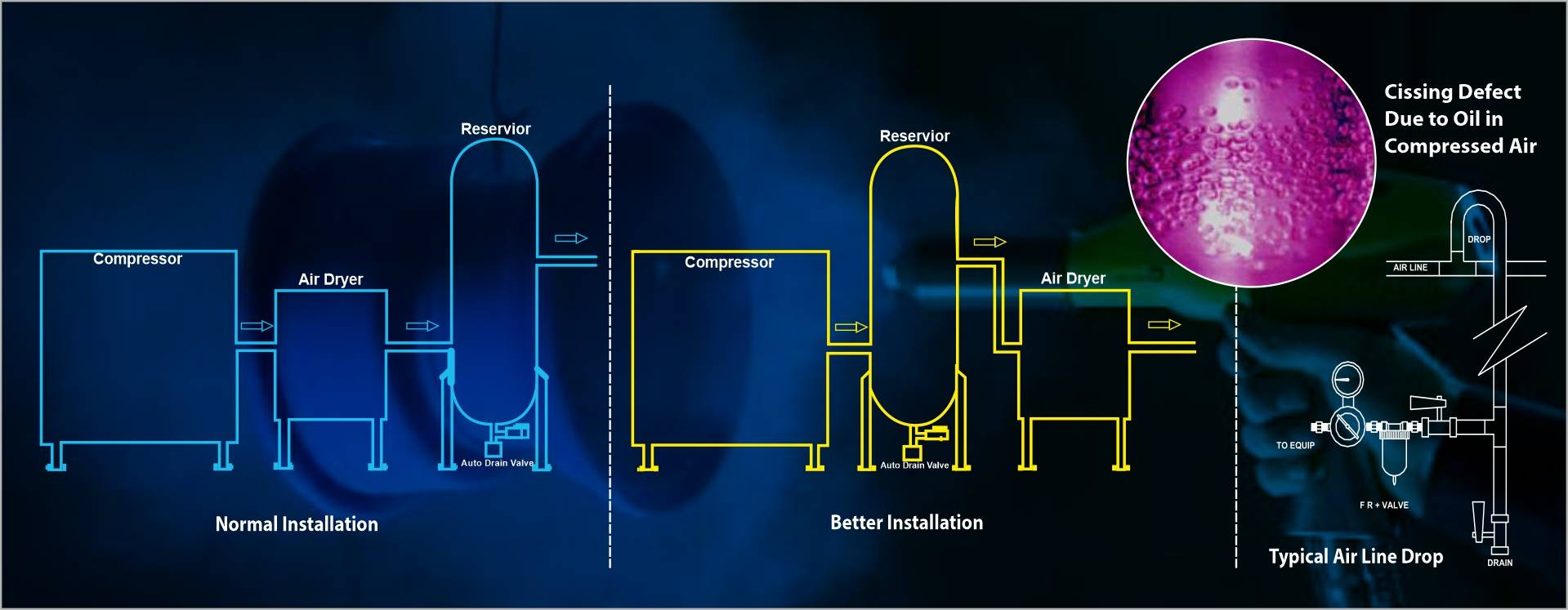
Compressed Air Management in Coating Shops Compressed Air Management in Coating Shops
The compressed air from the compressor is routed through pipes, hoses and manifolds to get it to the point of use.
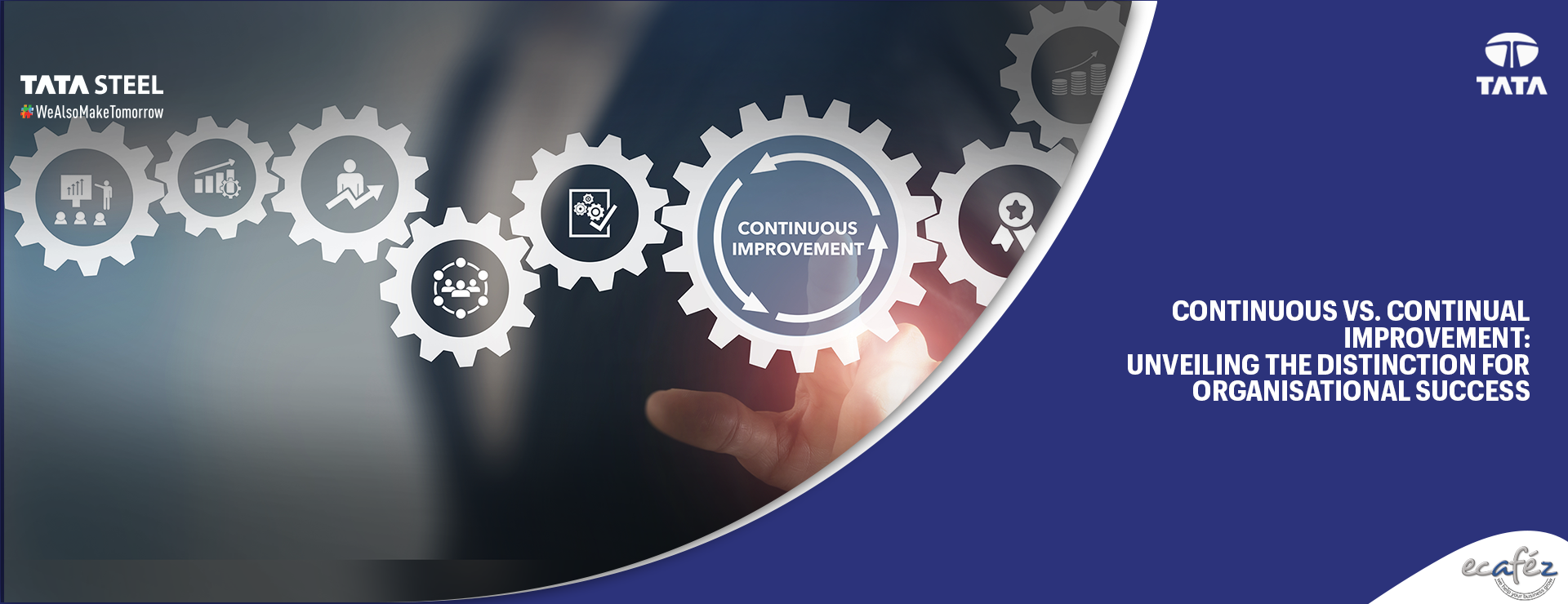
Continuous vs. Continual Improvement: Unveiling the Distinction for Organisational Success Continuous vs. Continual Improvement: Unveiling the Distinction for Organisational Success
The business world is rapidly changing every day, and every organisation is seeking ways to gain a competitive edge over their peers. In this scenario continuous improvement and continual improvement are two of the most commonly and often interchangeably used terms to help manage organisations.
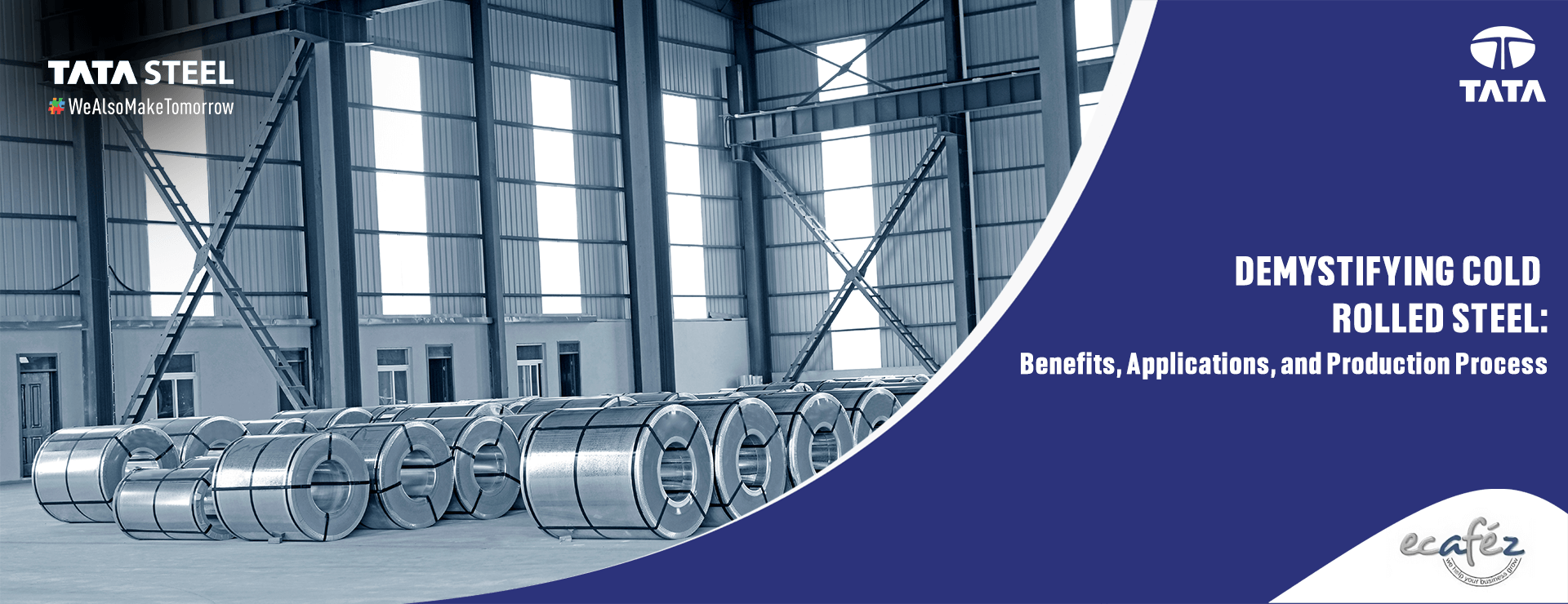
Demystifying Cold Rolled Steel: Benefits, Applications, and Production Process Demystifying Cold Rolled Steel: Benefits, Applications, and Production Process
Right from our houses to the places we work all that we see are mostly made of steel. With its ease in weldability, corrosion, and heat resistance, steel adheres to many such properties that make it a perfect metal to opt for whenever you are looking for a more durable metal to move forward with your construction projects.
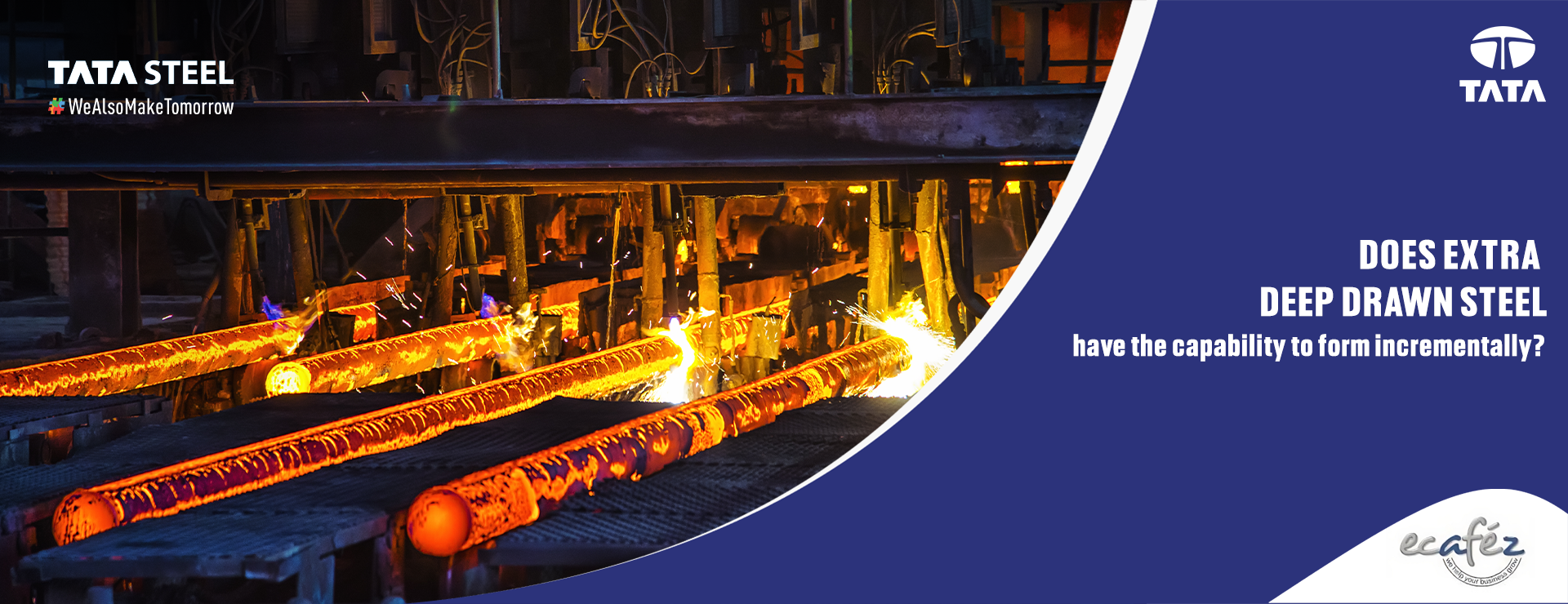
Does Extra Deep Drawn Steel have the capability to form incrementally? Does Extra Deep Drawn Steel have the capability to form incrementally?
Extra Deep Drawn Steel (EDD) has transformed the manufacturing industry with its exceptional properties and versatility. EDD steel is a specialized grade of steel that offers a perfect balance of formability, elongation, yield strength, and ductility, making it ideal for a wide range of applications.
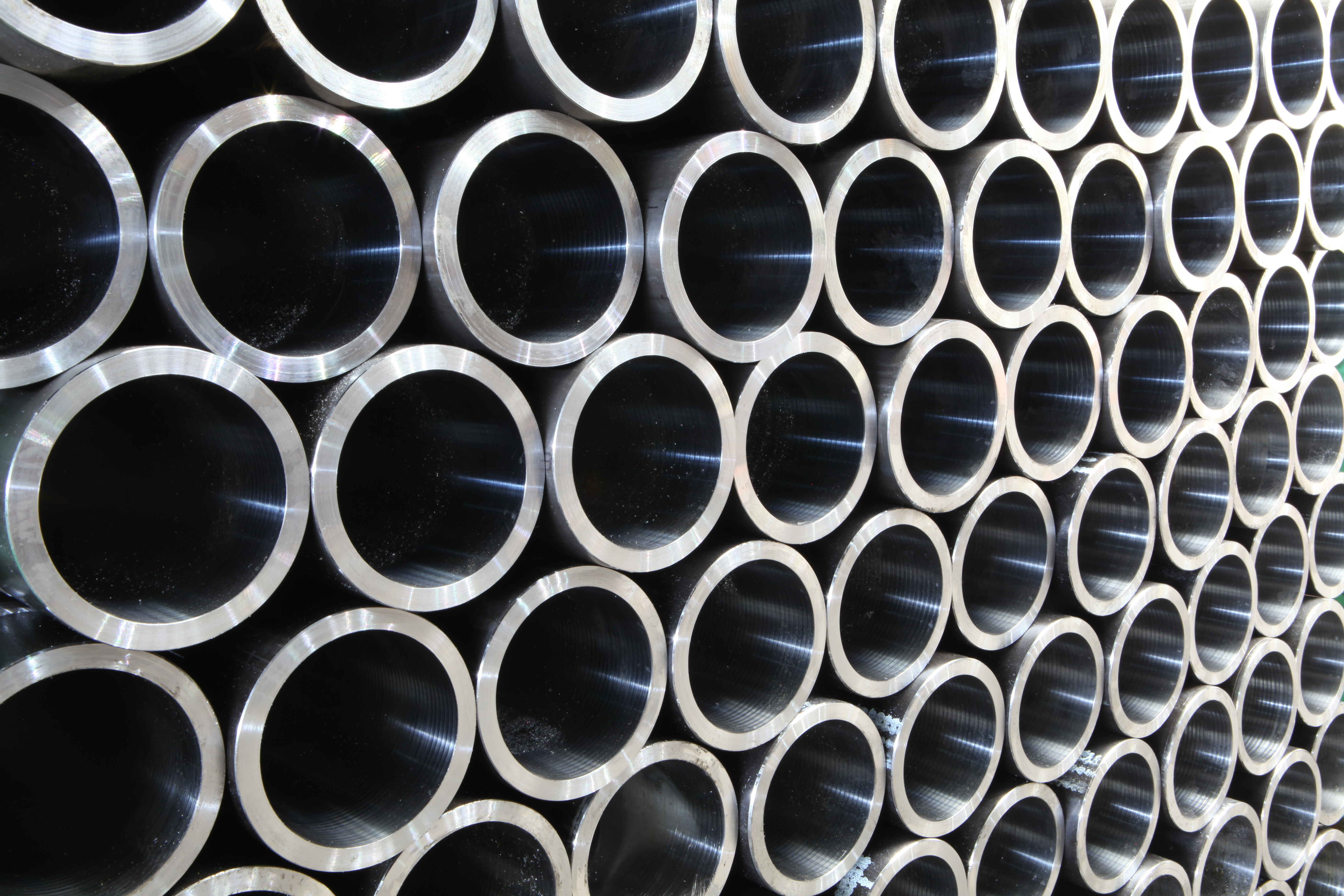
3 Types of Carbon Steel: Choose the Right One for Your Project 3 Types of Carbon Steel: Choose the Right One for Your Project
Every steel includes some carbon, and its physical quantities vary depending on their carbon concentration. Carbon steel is a form of steel that contains more than 0.02% carbon but less than 2% carbon and relatively few other components.
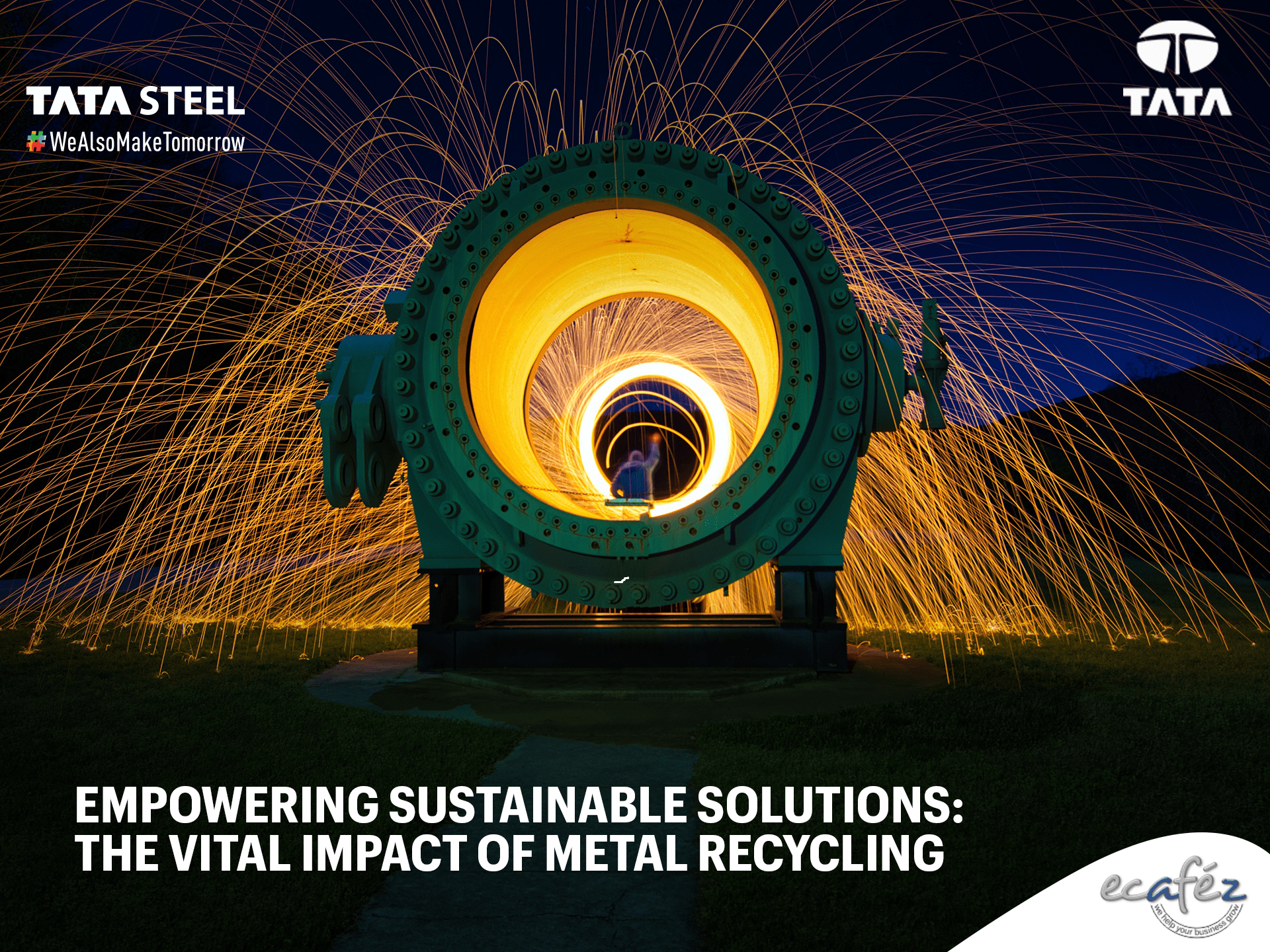
Empowering Sustainable Solutions: The Vital Impact of Metal Recycling Empowering Sustainable Solutions: The Vital Impact of Metal Recycling
In an era where the urgent need for sustainable development is more apparent than ever, various industries are seeking innovative solutions to reduce their environmental impact
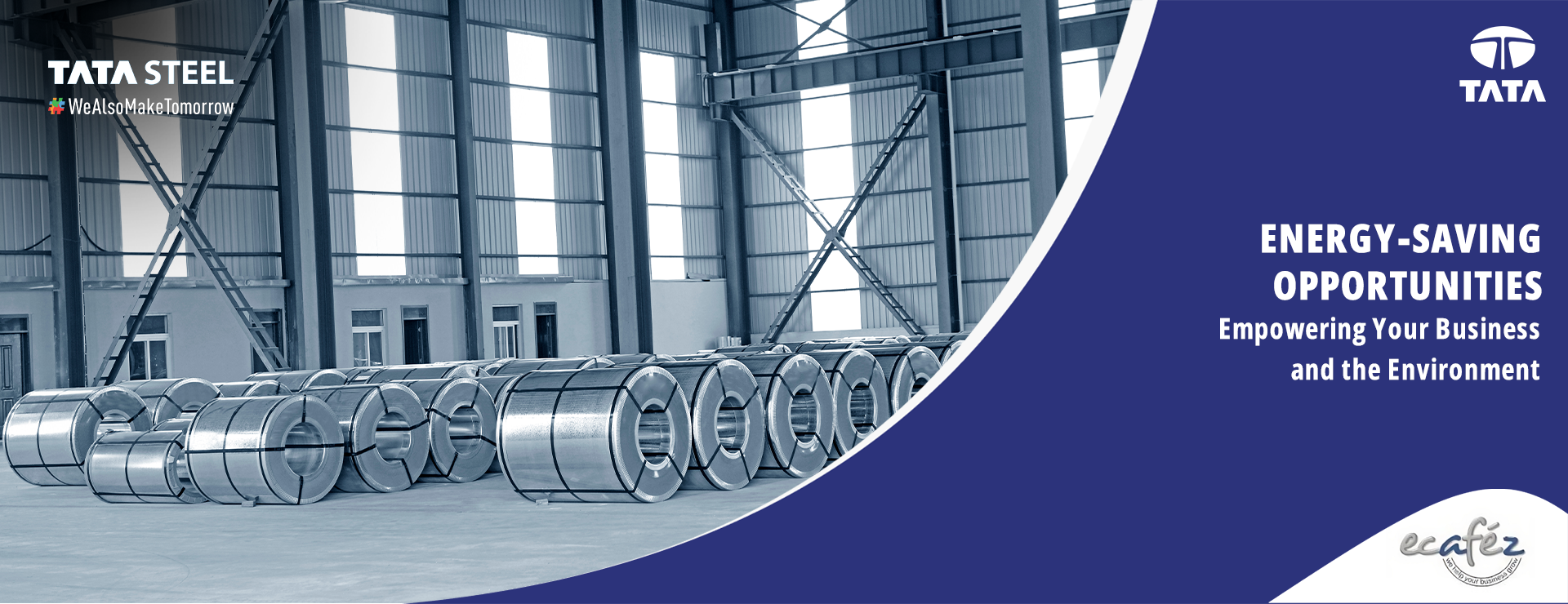
Energy-Saving Opportunities: Empowering Your Business and the Environment Energy-Saving Opportunities: Empowering Your Business and the Environment
Nowadays, we are seeing the latest technological advancements and updates in almost every other industry. As these advancements are becoming more and more frequent, with study and research, it has been concluded that as we climb up the ladder of technological progress, simultaneously, the need for a better environmental intervention is becoming necessary and non-negotiable.
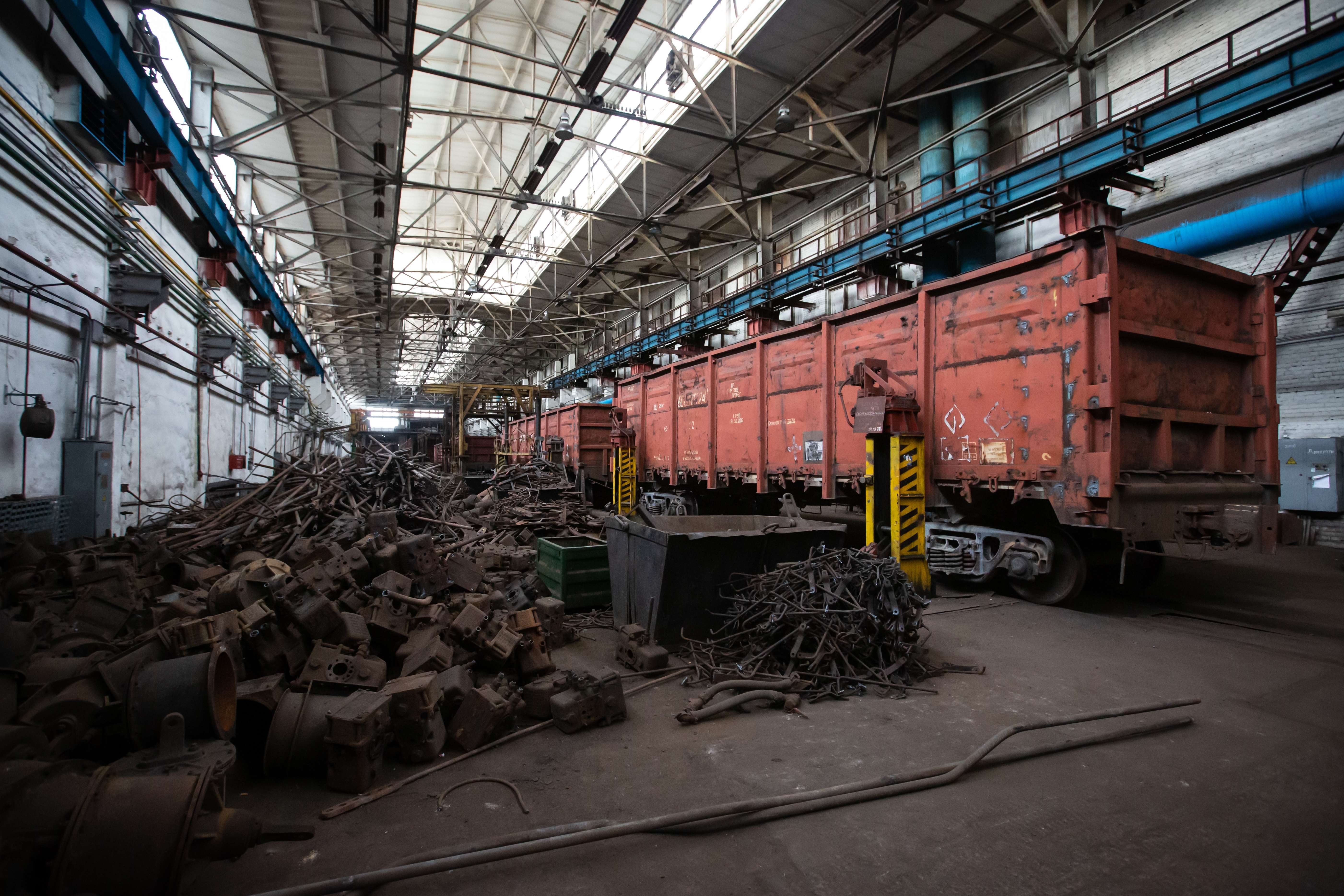
Evolution of the Railway industry with the help of Corten Steel Evolution of the Railway industry with the help of Corten Steel
Indian Railways has one of the largest rail networks in the world, with a total length of 67,956 km, 13,169 passenger trains, and 8,479 freight trains operating daily from 7,349 stops, carrying 23 million passengers and 3 million tonnes of freight.
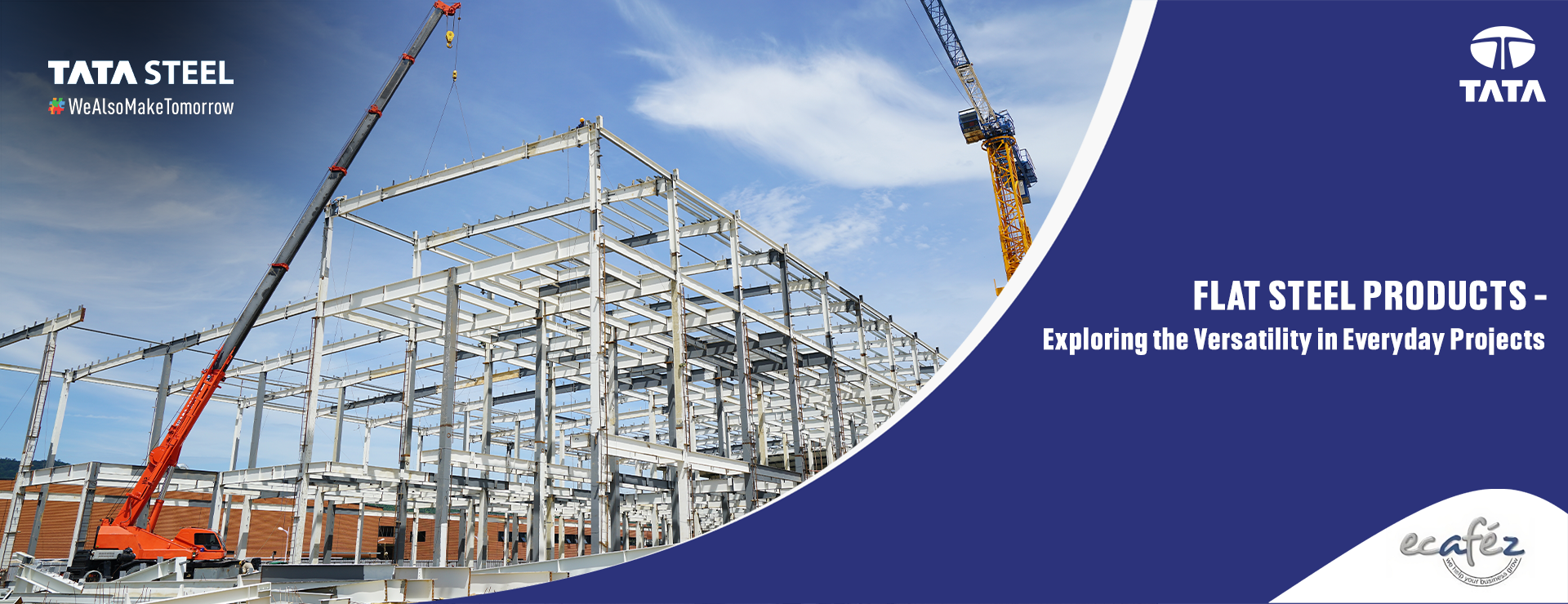
Flat Steel Products - Exploring the Versatility in Everyday Projects Flat Steel Products - Exploring the Versatility in Everyday Projects
Flat-rolled steel products are used widely due to their versatile properties and applicability across numerous industries. The formability of flat-rolled steel enables it to be easily shaped into various products, including automotive parts, appliances, and metal furniture
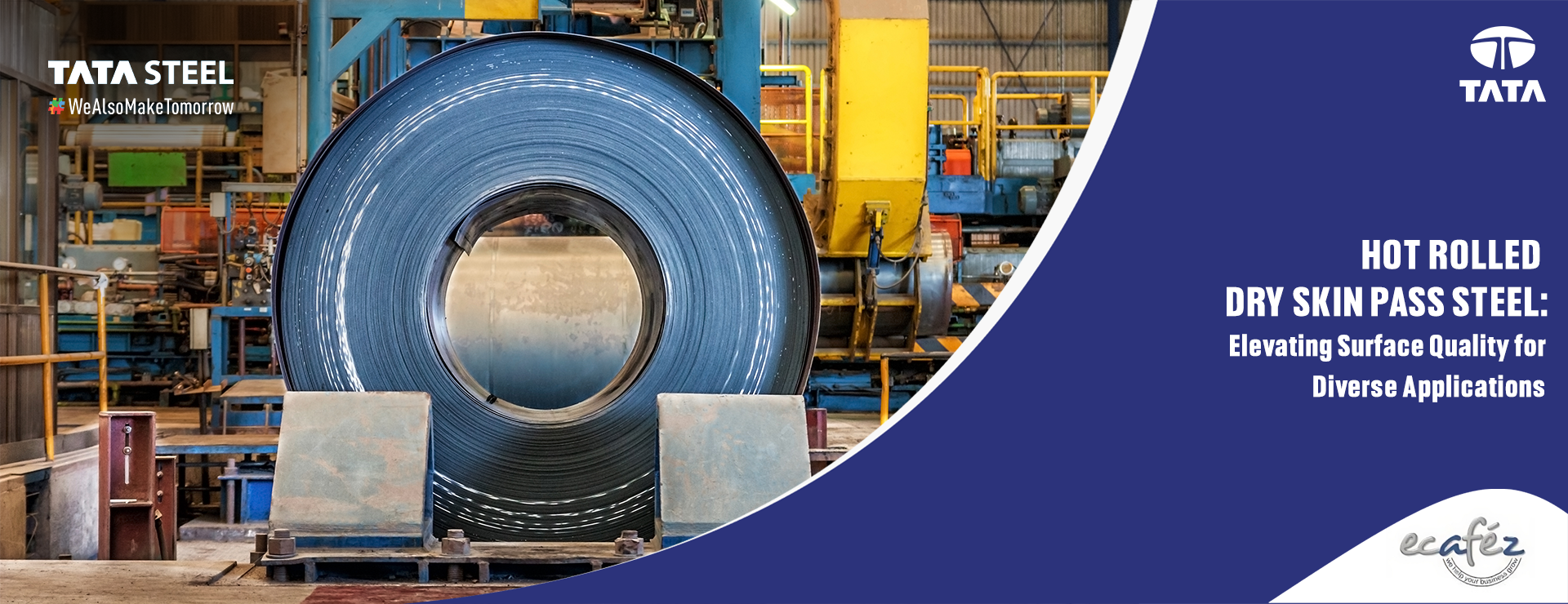
Hot Rolled Dry Skin Pass Steel: Elevating Surface Quality for Diverse Applications Hot Rolled Dry Skin Pass Steel: Elevating Surface Quality for Diverse Applications
In the vast realm of steel manufacturing, there are numerous processes aimed at enhancing the quality and appearance of steel products. One such transformative process is hot rolled dry skin pass, which involves treating hot rolled steel to achieve a smoother and cleaner surface.
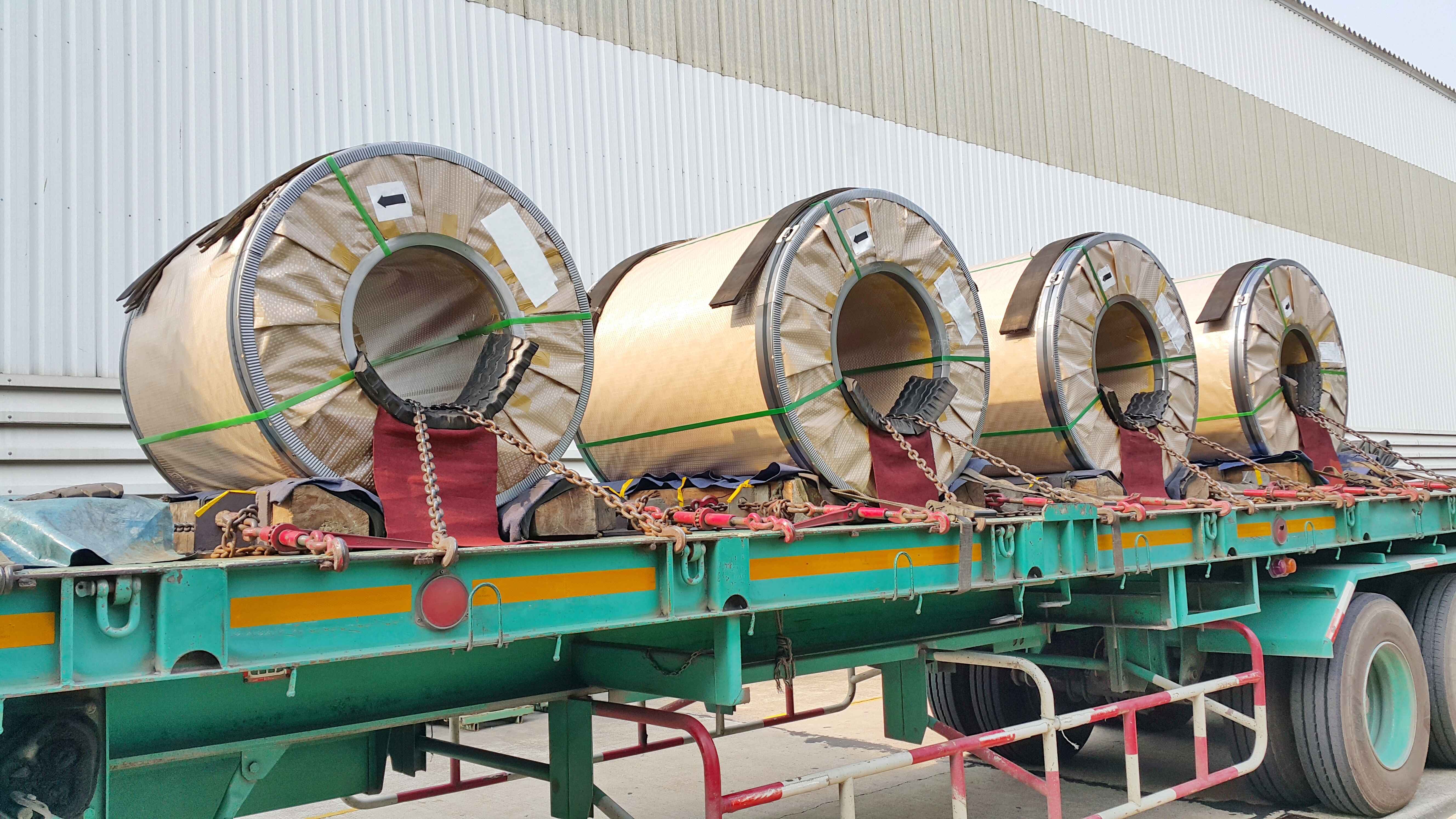
How Coronavirus made Green Steel more important than ever How Coronavirus made Green Steel more important than ever
Green Steel refers to steel that is mainly produced without the use of fossil fuel and is produced with environmentally-friendly processes and technologies to reduce carbon emissions and minimize environmental impact.
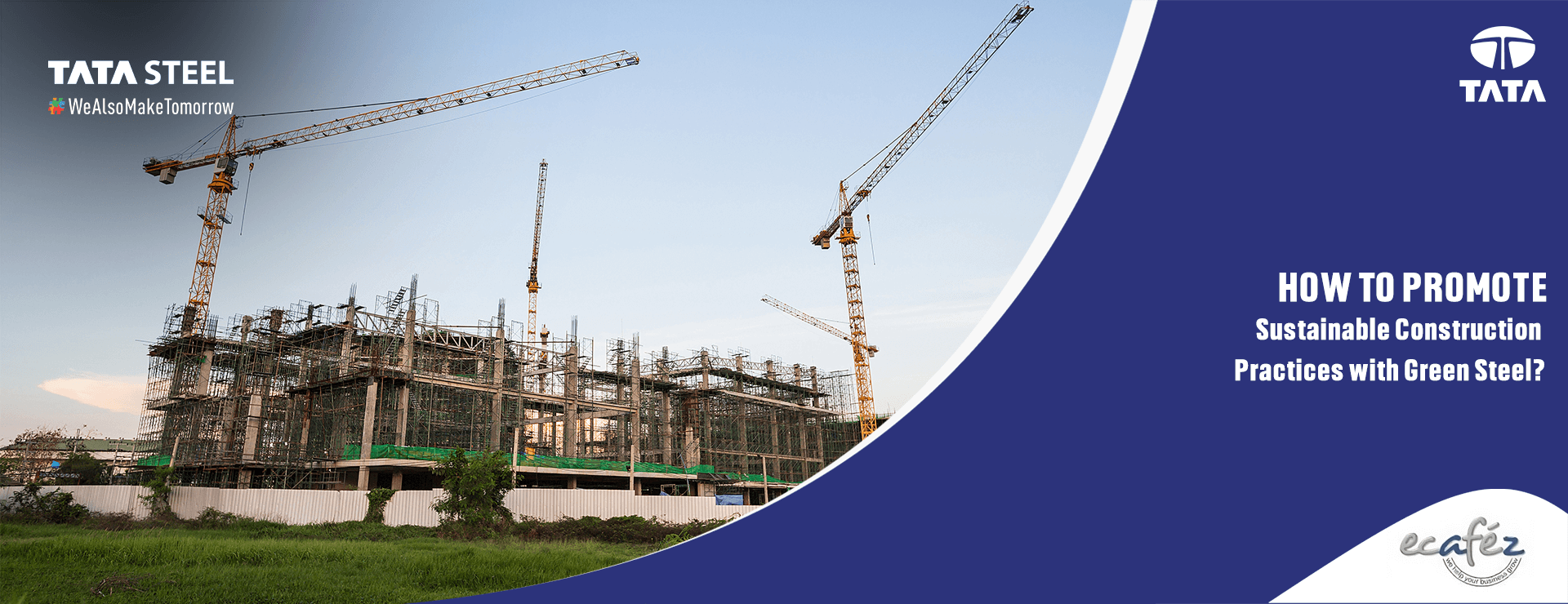
How to Promote Sustainable Construction Practices with Green Steel? How to Promote Sustainable Construction Practices with Green Steel?
Sustainable practices have recently become more prevalent in the building sector. Sustainable construction has become an essential component of the business due to the rising concern for environmental preservation and the requirement to reduce carbon footprints.

Impact of Hot Rolled Steel in Agricultural Sector Impact of Hot Rolled Steel in Agricultural Sector
Agricultural equipment must withstand environmental conditions. Many sectors rely on robust, corrosion-resistant metals like hot-rolled steel to maintain consistent performance and durability.

Achieving Green Steel : How India may Bridge the Decarbonization Gap Achieving Green Steel : How India may Bridge the Decarbonization Gap
The backbone of India's industrial development and a major contributor to its economy is the steel sector. The iron and steel industries currently use an immense amount of energy and produce a lot of emissions
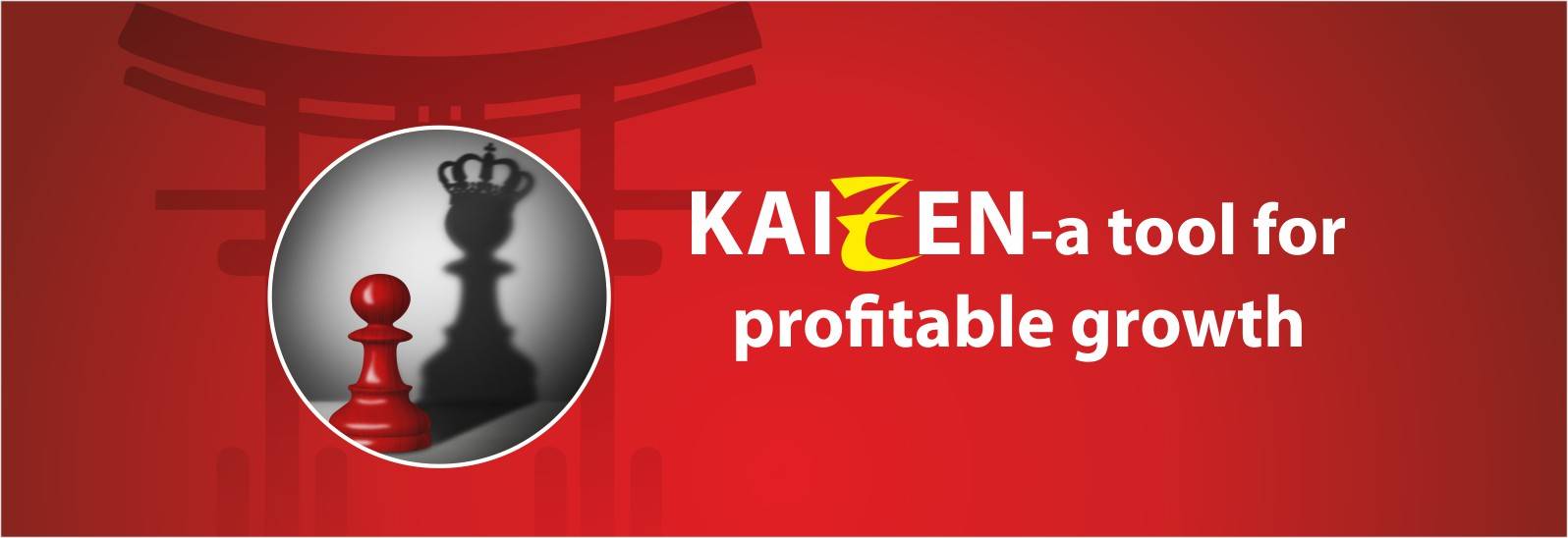
Kaizen An Effective Technique to Improve Customer Value and Organization Profitability Ecafez Kaizen An Effective Technique to Improve Customer Value and Organization Profitability Ecafez
Kaizen is a Japanese term that translates to 'continuous improvement' or 'change for the better'. It is a management concept originating from Japanese industry aiming at continuously effecting incremental changes for the better, involving everybody within the organization from workers to managers.
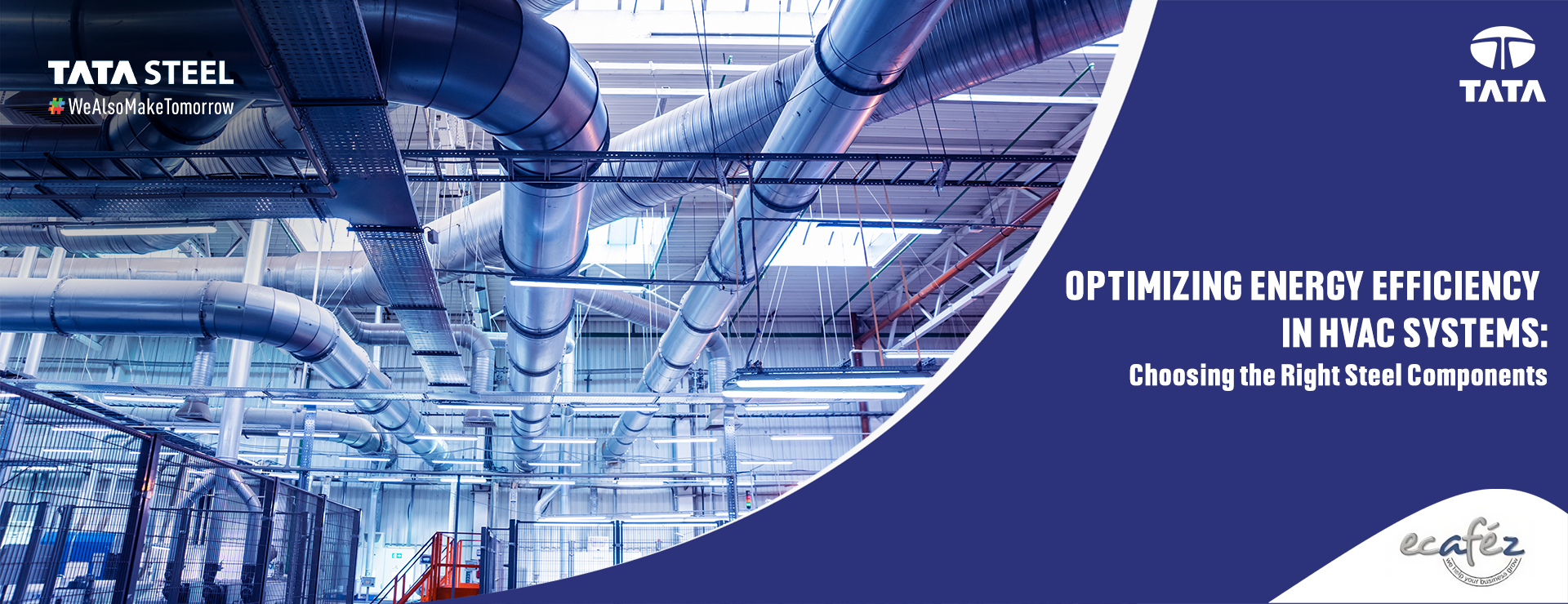
Optimizing Energy Efficiency in HVAC Systems: Choosing the Right Steel Components Optimizing Energy Efficiency in HVAC Systems: Choosing the Right Steel Components
The use of steel in HVAC systems is prevalent worldwide due to its excellent properties such as strength, durability, and corrosion resistance. According to a report by ResearchAndMarkets.com, the global HVAC systems market was valued at USD 189.94 billion in 2020 and is projected to reach USD 287.75 billion by 2026, growing at a CAGR of 7.2% from 2021 to 2026.
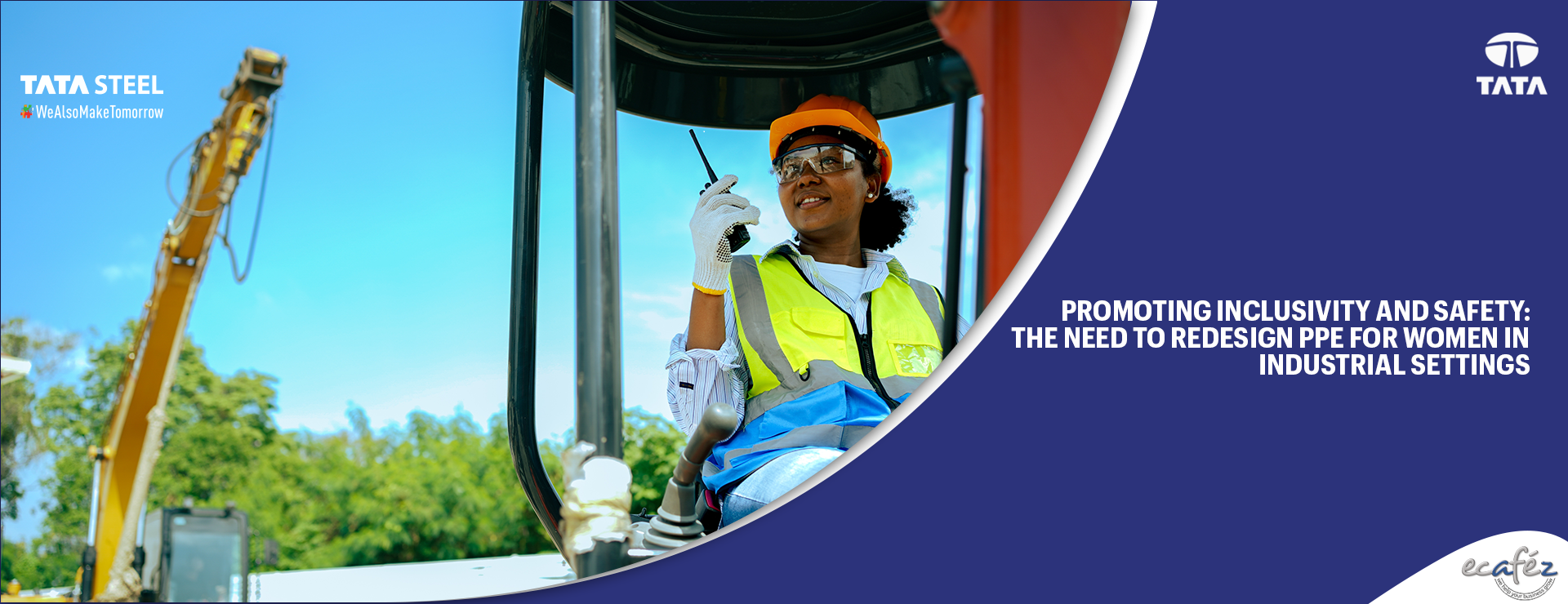
Promoting Inclusivity and Safety: The Need to Redesign PPE for Women in Industrial Settings Promoting Inclusivity and Safety: The Need to Redesign PPE for Women in Industrial Settings
The majority of safety gear and personal protective equipment (PPE) are made with keeping men in mind, and the industrial landscape has long been seen as a male-dominated environment.
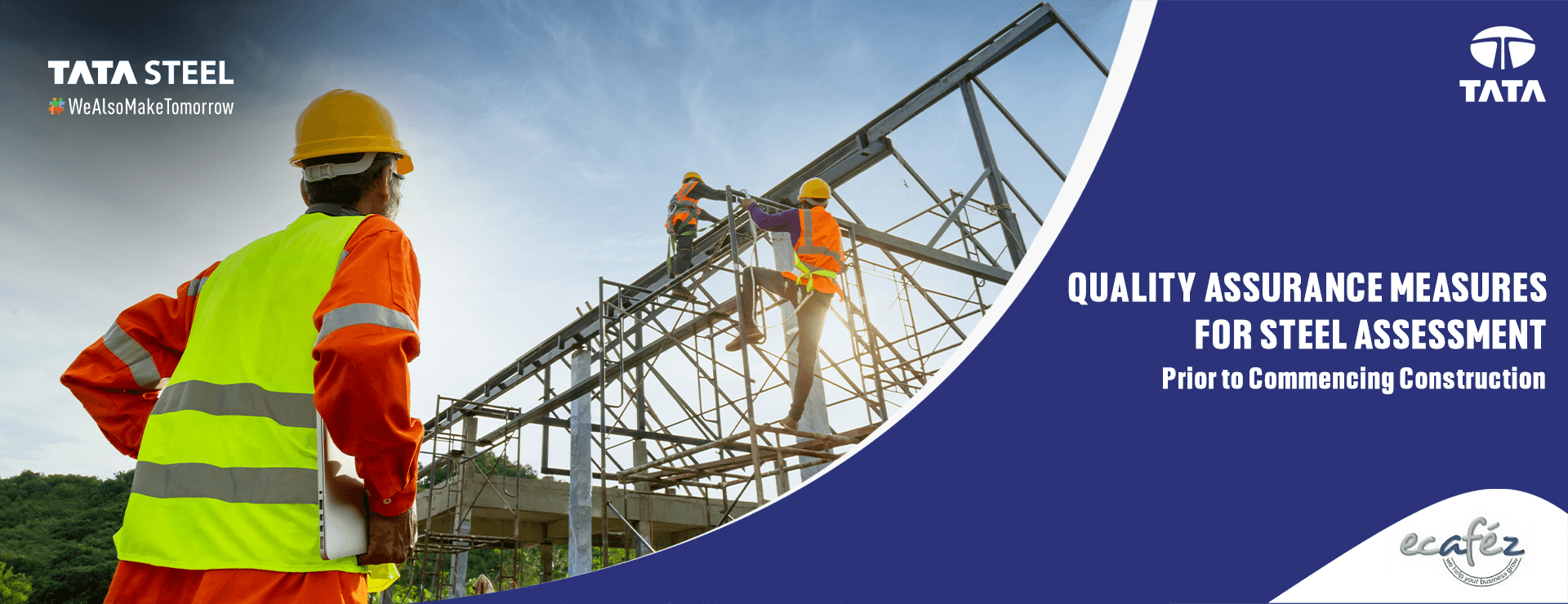
Quality Assurance Measures for Steel Assessment Prior to Commencing Construction Quality Assurance Measures for Steel Assessment Prior to Commencing Construction
The foundation of any successful construction project lies in the quality of the steel used. To guarantee a durable and reliable structure, it is essential to assess the steel thoroughly before commencing construction.
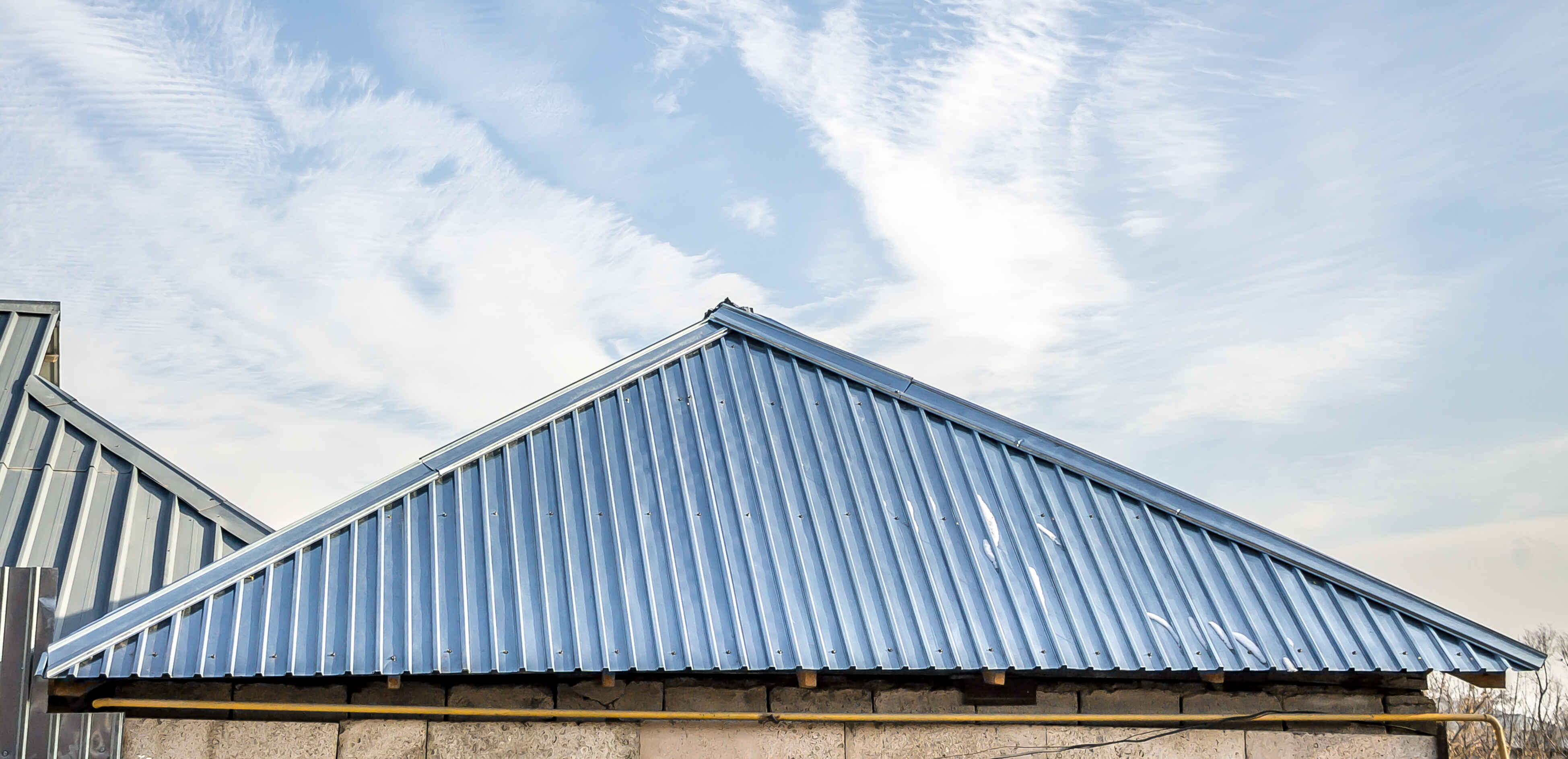
Reasons for Using Galvanized Steel For Your Construction Reasons for Using Galvanized Steel For Your Construction
Galvanized steel is one of the most common steel type due to its long durability, the toughness and ductility of steel, and the corrosion protection provided by the zinc-iron coating.
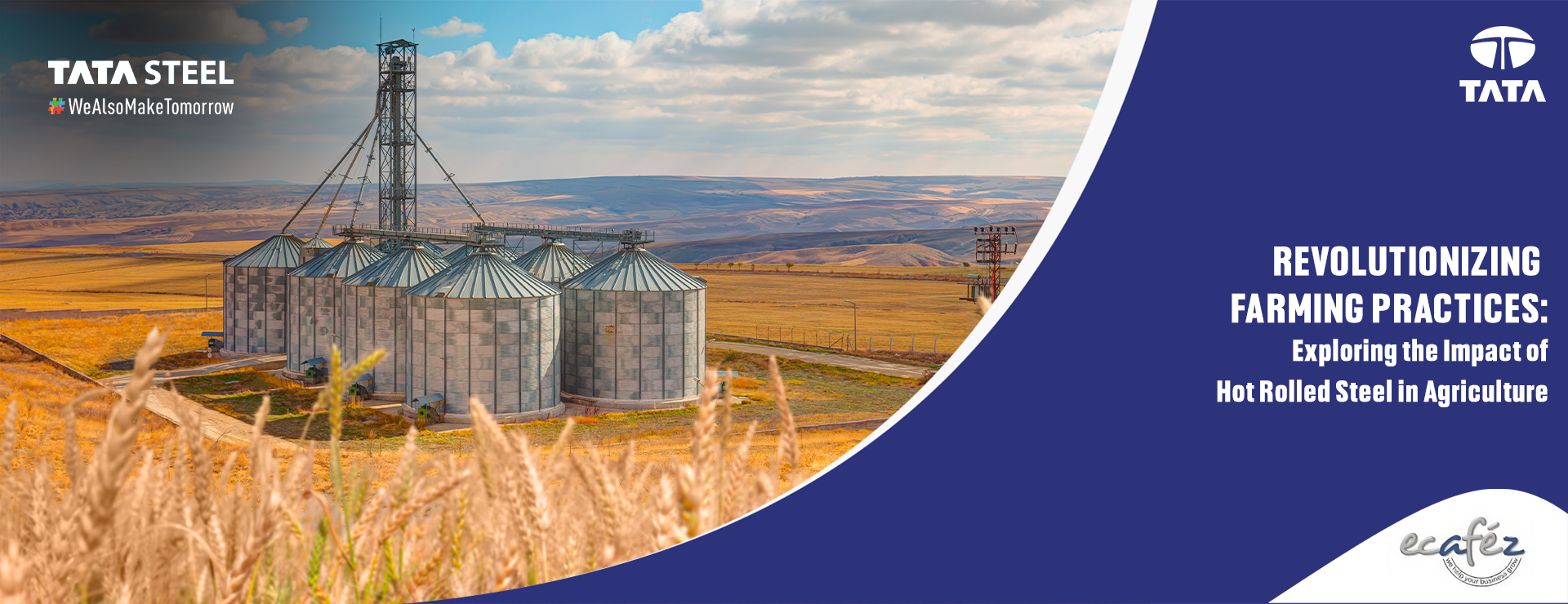
Revolutionizing Farming Practices: Exploring the Impact of Hot Rolled Steel in Agriculture Revolutionizing Farming Practices: Exploring the Impact of Hot Rolled Steel in Agriculture
Agri is an important and large segment for HR. The information provided here are very less and need more information on this.
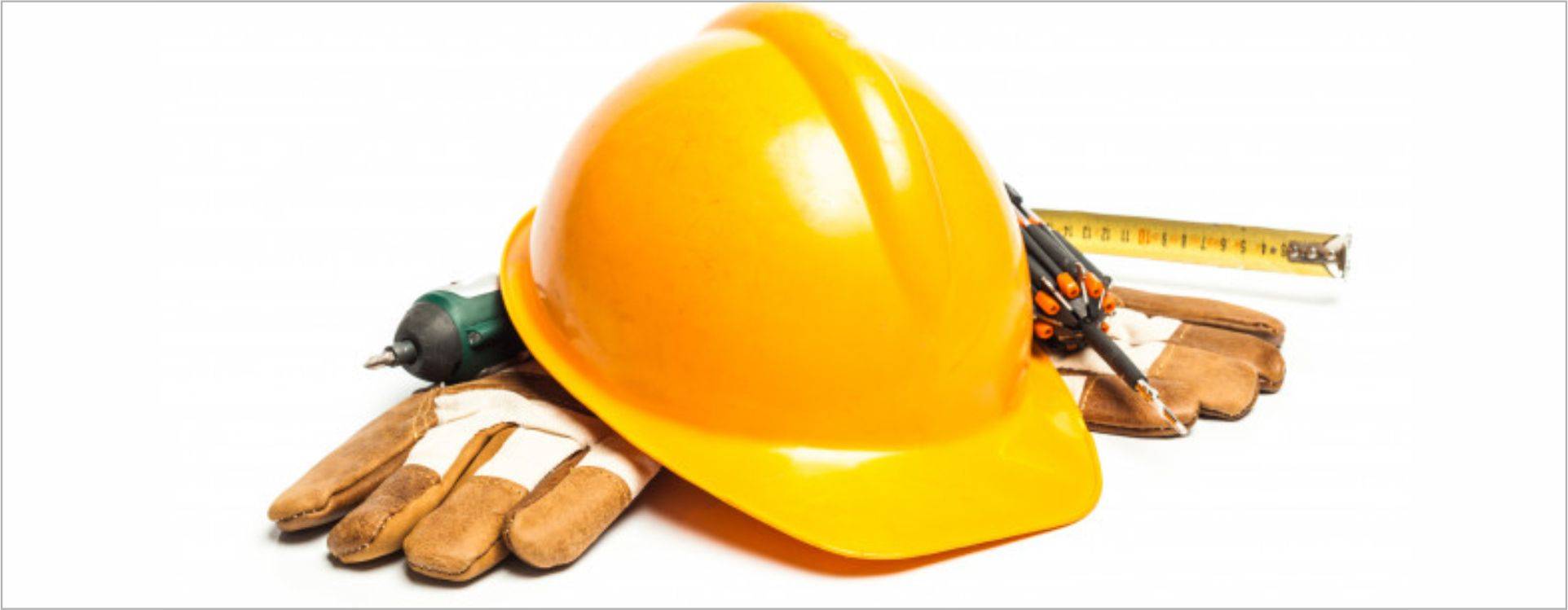
Safety best practices for small and medium enterprises Safety best practices for small and medium enterprises
A study carried out in 30 SMEs mainly in Mumbai, Maharashtra and a few other states, randomly chosen to evaluate safety practices, examined the barriers and drivers for technological innovation and recommended best practices on safety issues.
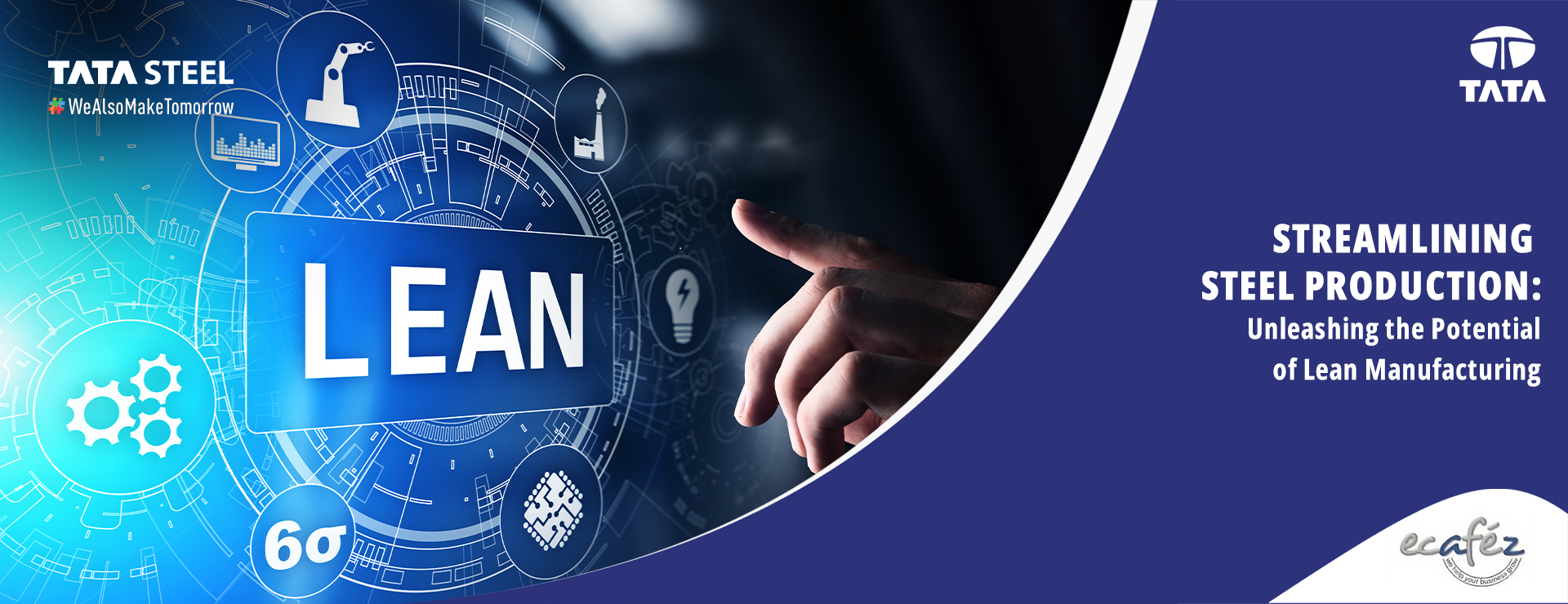
Streamlining Steel Production: Unleashing the Potential of Lean Manufacturing Streamlining Steel Production: Unleashing the Potential of Lean Manufacturing
Lean manufacturing or just 'lean' is a systematic approach to production that aims at eliminating waste, improving efficiency and enhancing overall Value delivered to the end customers.
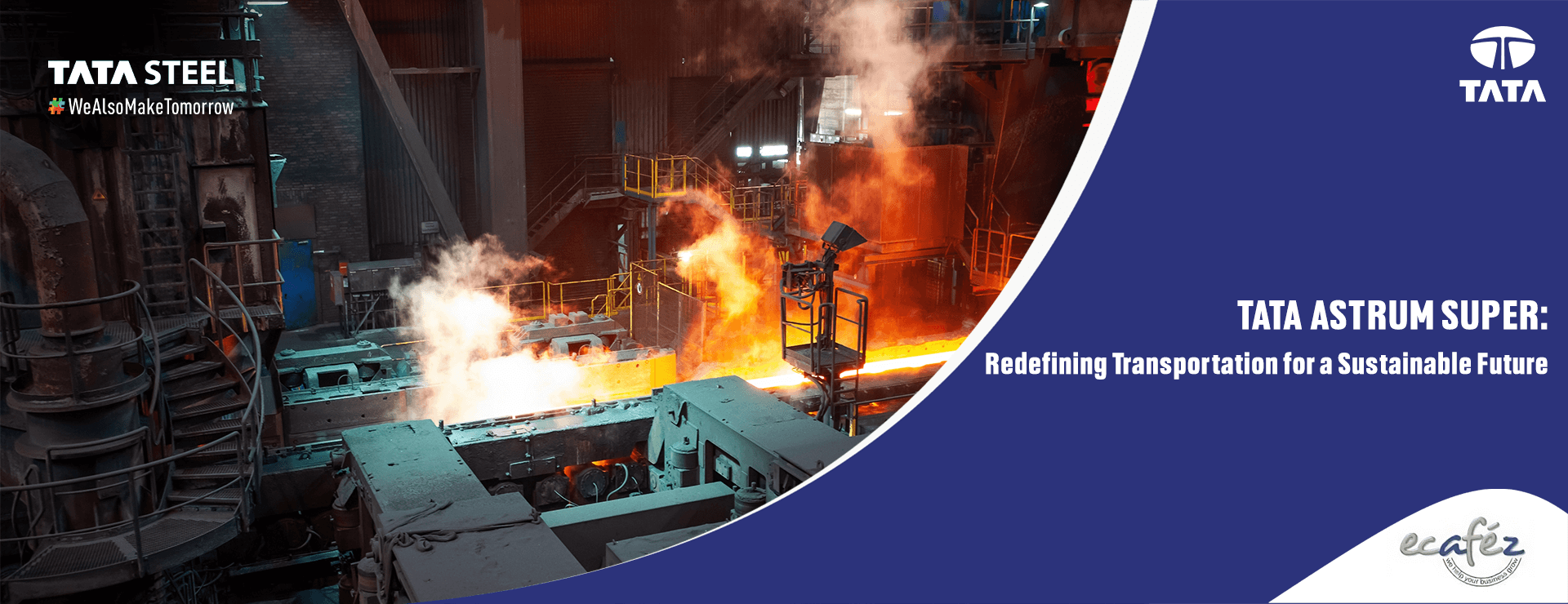
Tata Astrum Super: Redefining Transportation for a Sustainable Future Tata Astrum Super: Redefining Transportation for a Sustainable Future
Hot rolled steel, a foundational material in modern industry, possesses exceptional strength and versatility. It plays a crucial role in various applications, offering durability and reliability

TATA EXCLUSIVE| Breaking Free - India's Quest for Container Self-Reliance and Reducing China's Monopoly TATA EXCLUSIVE| Breaking Free - India's Quest for Container Self-Reliance and Reducing China's Monopoly
India's pursuit of container self-reliance and the reduction of China's monopoly has become a significant priority for the nation. In an effort to bolster domestic manufacturing and decrease reliance on China for shipping-grade containers, the government is preparing to introduce a groundbreaking production-linked incentive (PLI) scheme.
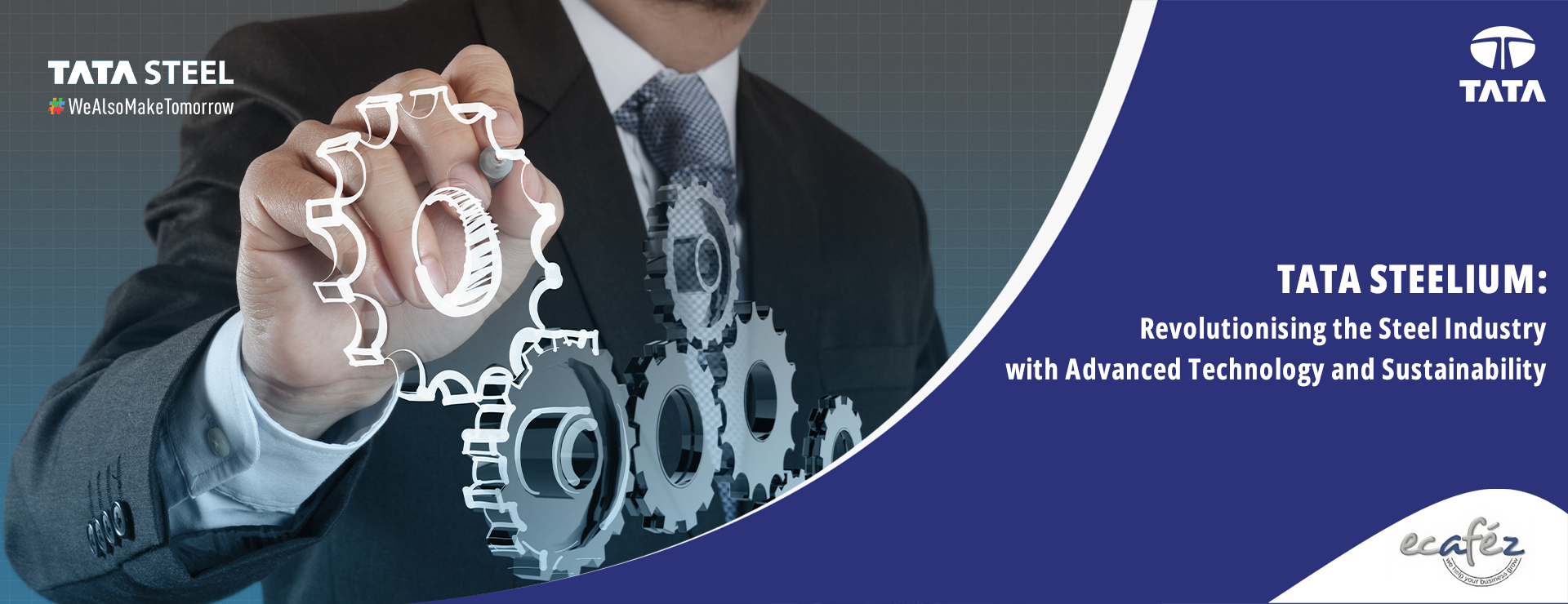
Tata Steelium: Revolutionising the Steel Industry with Advanced Technology and Sustainability Tata Steelium: Revolutionising the Steel Industry with Advanced Technology and Sustainability
One of the fastest growing industries across the world has to be the steel industry! With India being the second largest steel producer in the world, not only does it help with developing the nation but also making it mark in the world.
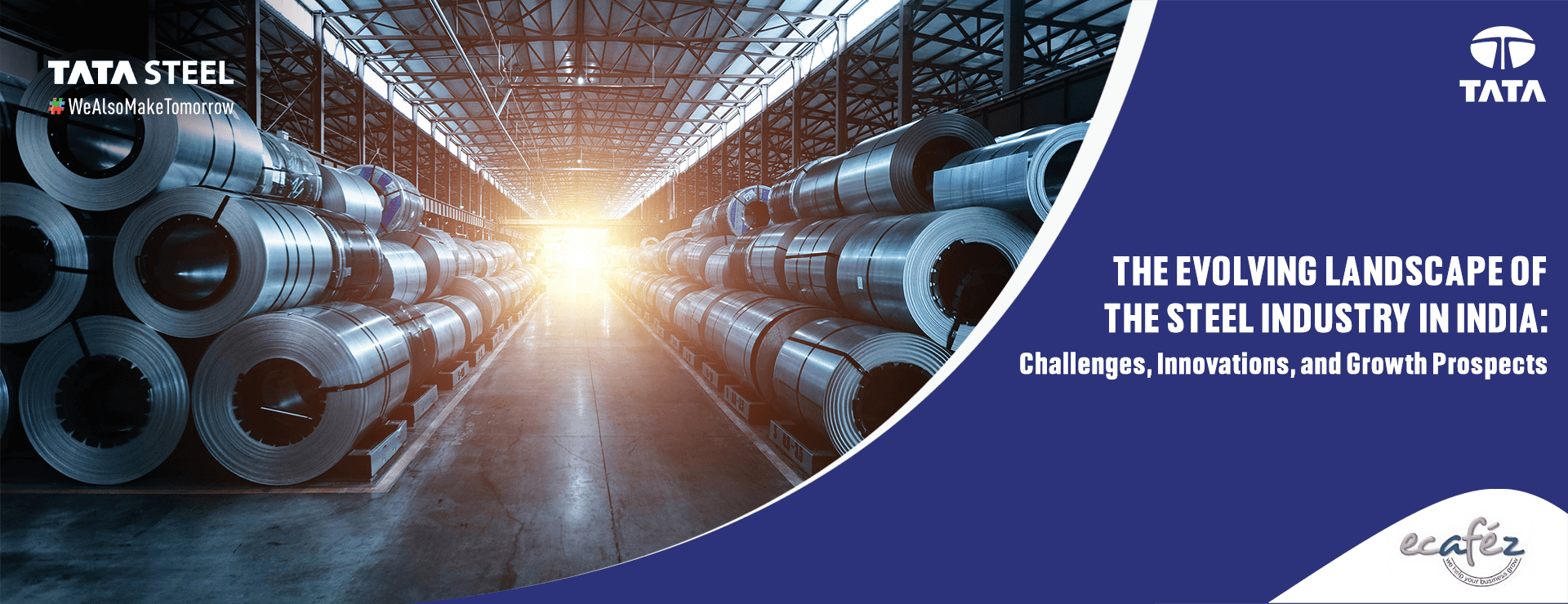
The Evolving Landscape of the Steel Industry in India: Challenges, Innovations, and Growth Prospects The Evolving Landscape of the Steel Industry in India: Challenges, Innovations, and Growth Prospects
For decades, the Indian steel industry has stood as a driving force behind the nation's economic progress, forming the backbone of infrastructure and driving manufacturing endeavors.
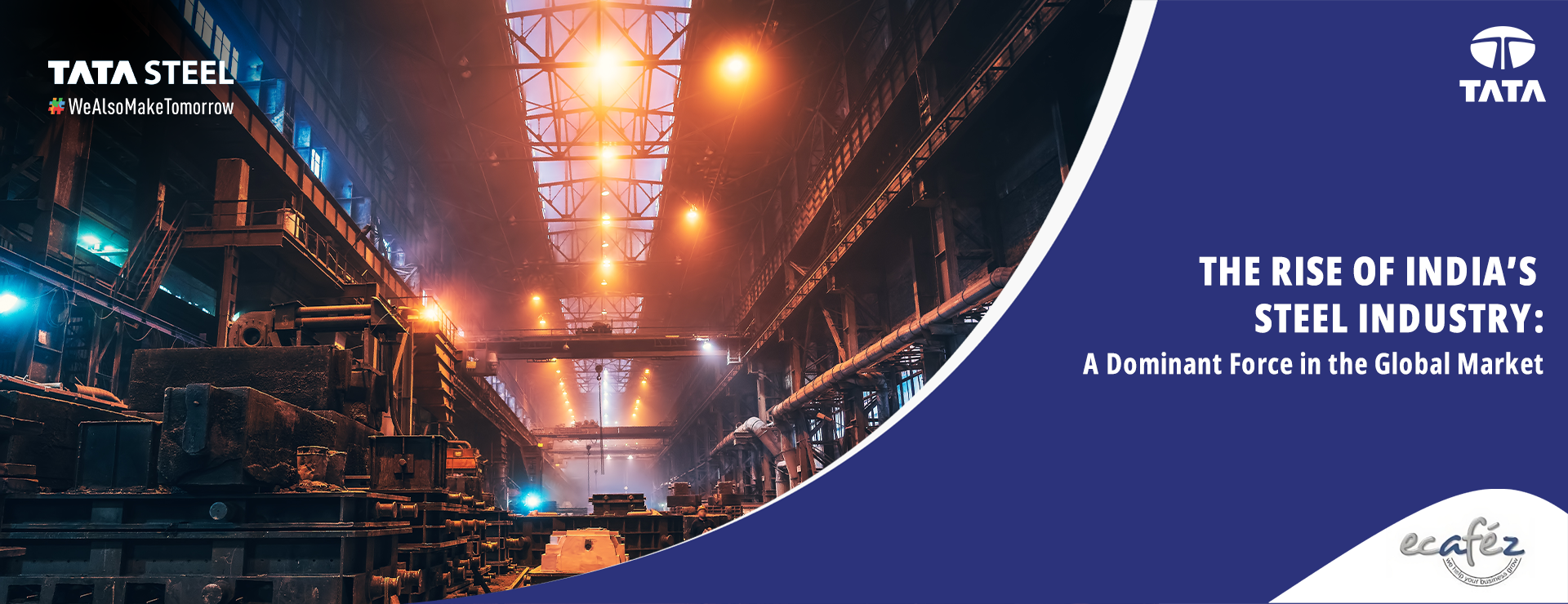
The Rise of India's Steel Industry: A Dominant Force in the Global Market The Rise of India's Steel Industry: A Dominant Force in the Global Market
India’s association with metals began as early as we can date our ancient civilizations. From sculptures to jewellery to cookware and even weapons— metal, be it in any form, has been contributing to our advancements.
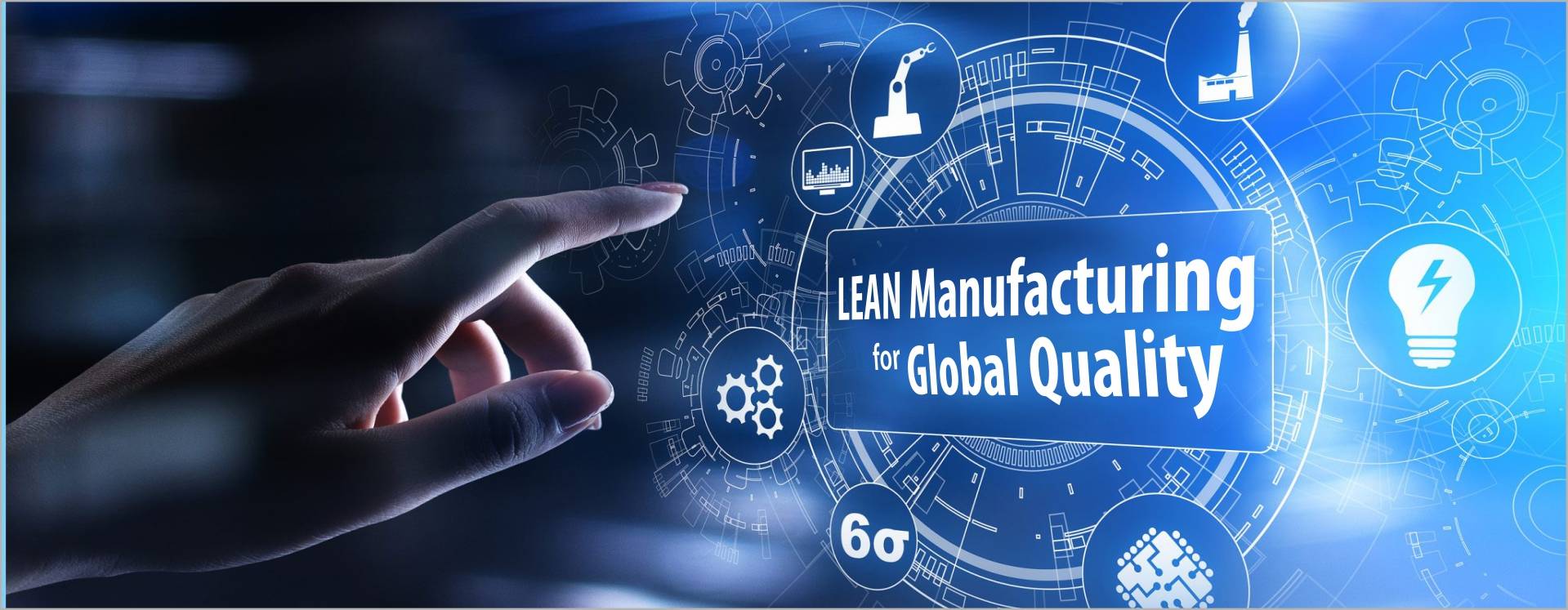
Total Quality Management - Essential for survival and growth of every industry Total Quality Management - Essential for survival and growth of every industry
Quality is the most essential and core element of every product and service to meet the needs and expectations of customers, manufacturers, supplier and other stakeholders. At the same time Quality is a highly dynamic goal, changing every day to higher standards.

Trade Credits & Its benefits in Steel Industry Trade Credits & Its benefits in Steel Industry
Trade credit is a common practice in the steel industry, where suppliers offer credit terms to their customers. These credit terms can be in the form of delayed payment or a credit line that allows the customer to purchase steel products on credit.
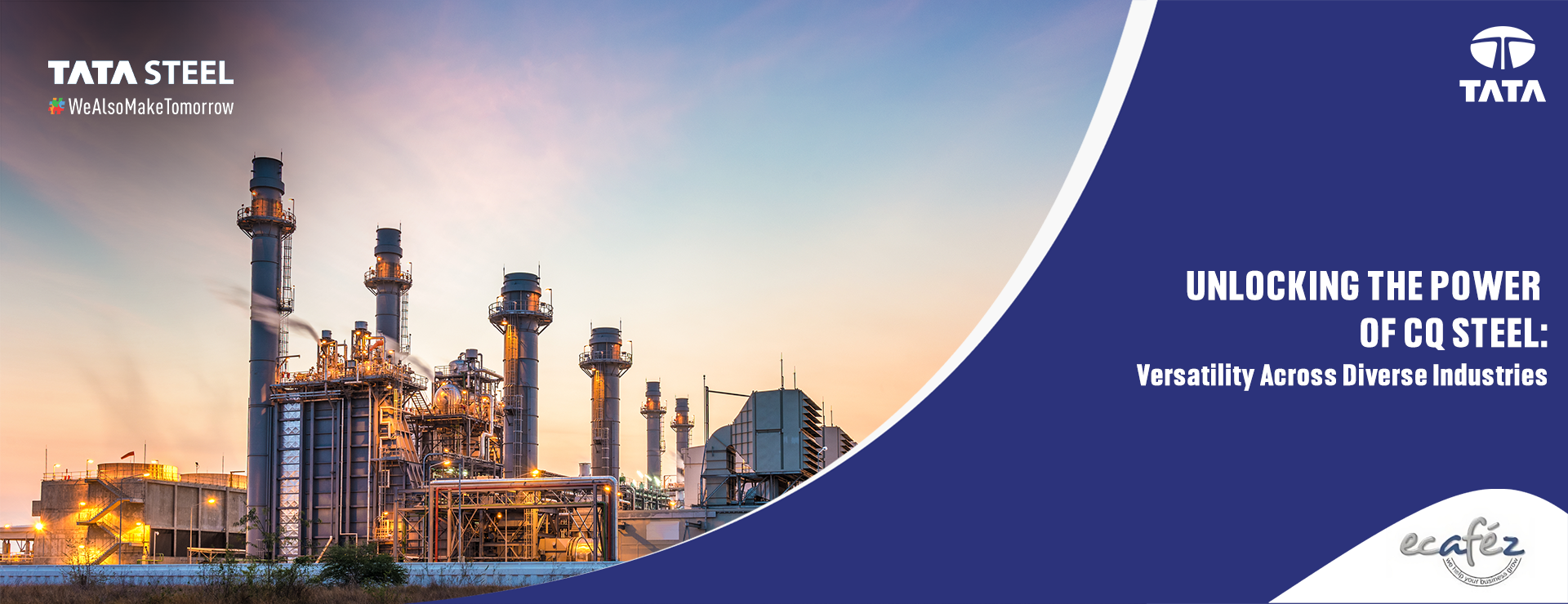
Unlocking the Power of CQ Steel: Versatility Across Diverse Industries Unlocking the Power of CQ Steel: Versatility Across Diverse Industries
CQ steel, commonly known as Commercial Quality steel, is a highly versatile grade renowned for its affordability, ease of processing, and moderate strength. With its unique properties and wide-ranging applications, CQ steel serves as a fundamental material in numerous industries.
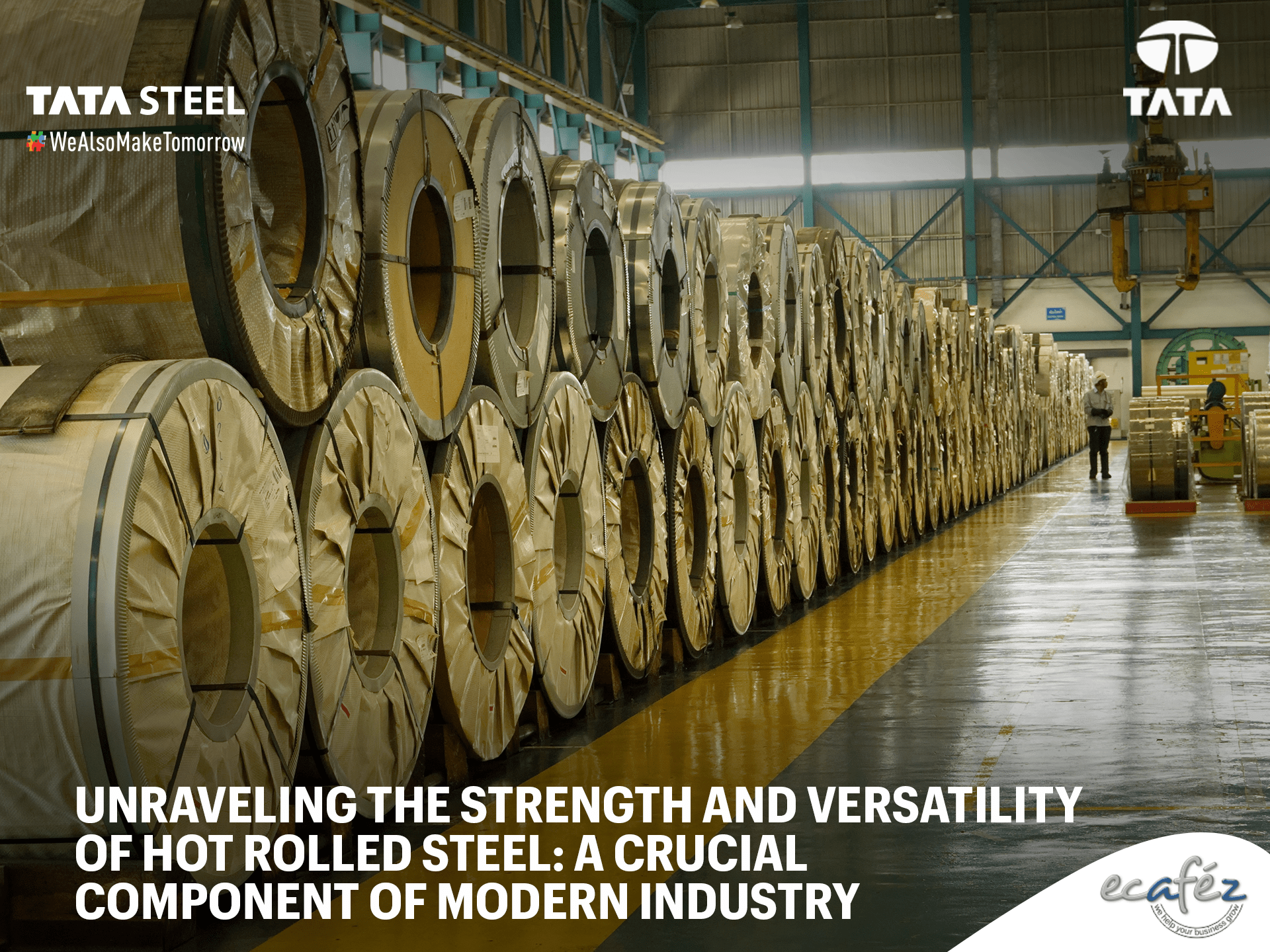
Unraveling the Strength and Versatility of Hot Rolled Steel: A Crucial Component of Modern Industry Unraveling the Strength and Versatility of Hot Rolled Steel: A Crucial Component of Modern Industry
Hot rolled steel, a foundational material in modern industry, possesses exceptional strength and versatility. It plays a crucial role in various applications, offering durability and reliability.
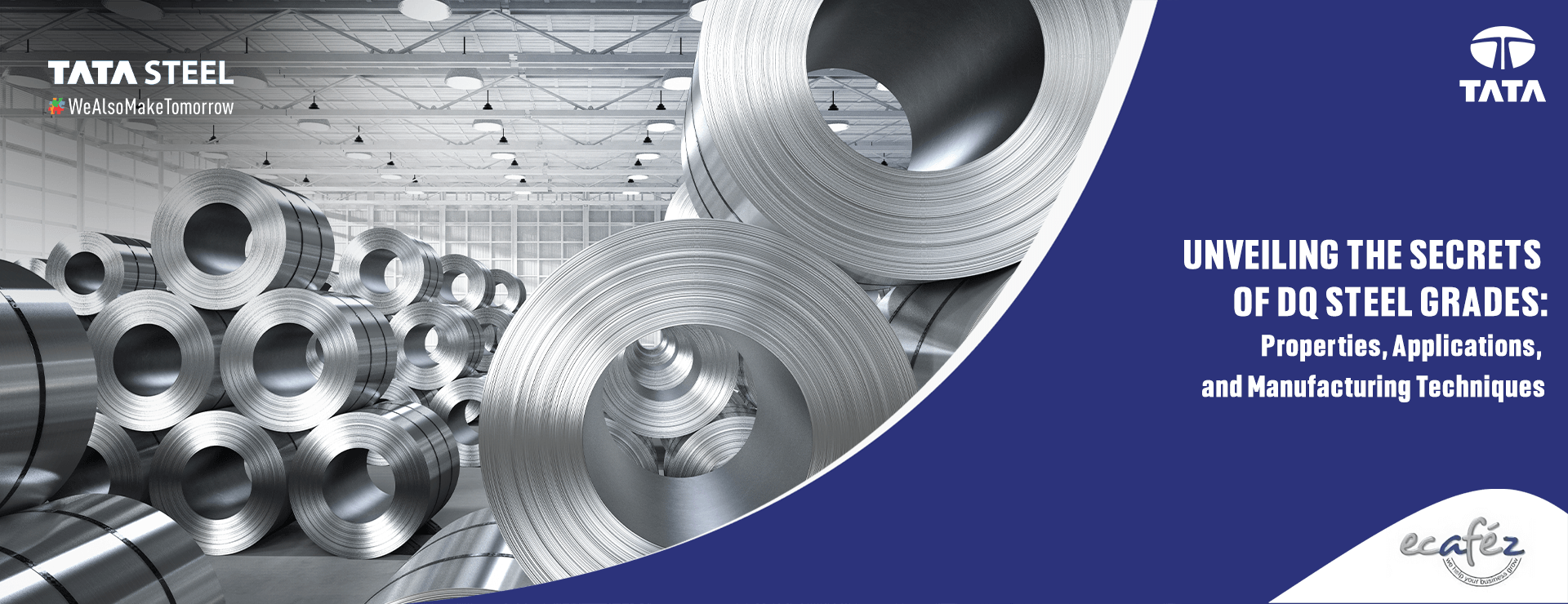
Unveiling the Secrets of DQ Steel Grades: Properties, Applications, and Manufacturing Techniques Unveiling the Secrets of DQ Steel Grades: Properties, Applications, and Manufacturing Techniques
Steel's qualities of versatility and long-term durability are among the many reasons why one uses it to manufacture products. However, there are various types of steel that are fit for different applications owing to their unique properties and way of manufacturing — so how do you know which steel is the best for you? The key is in knowing the grades of steel.
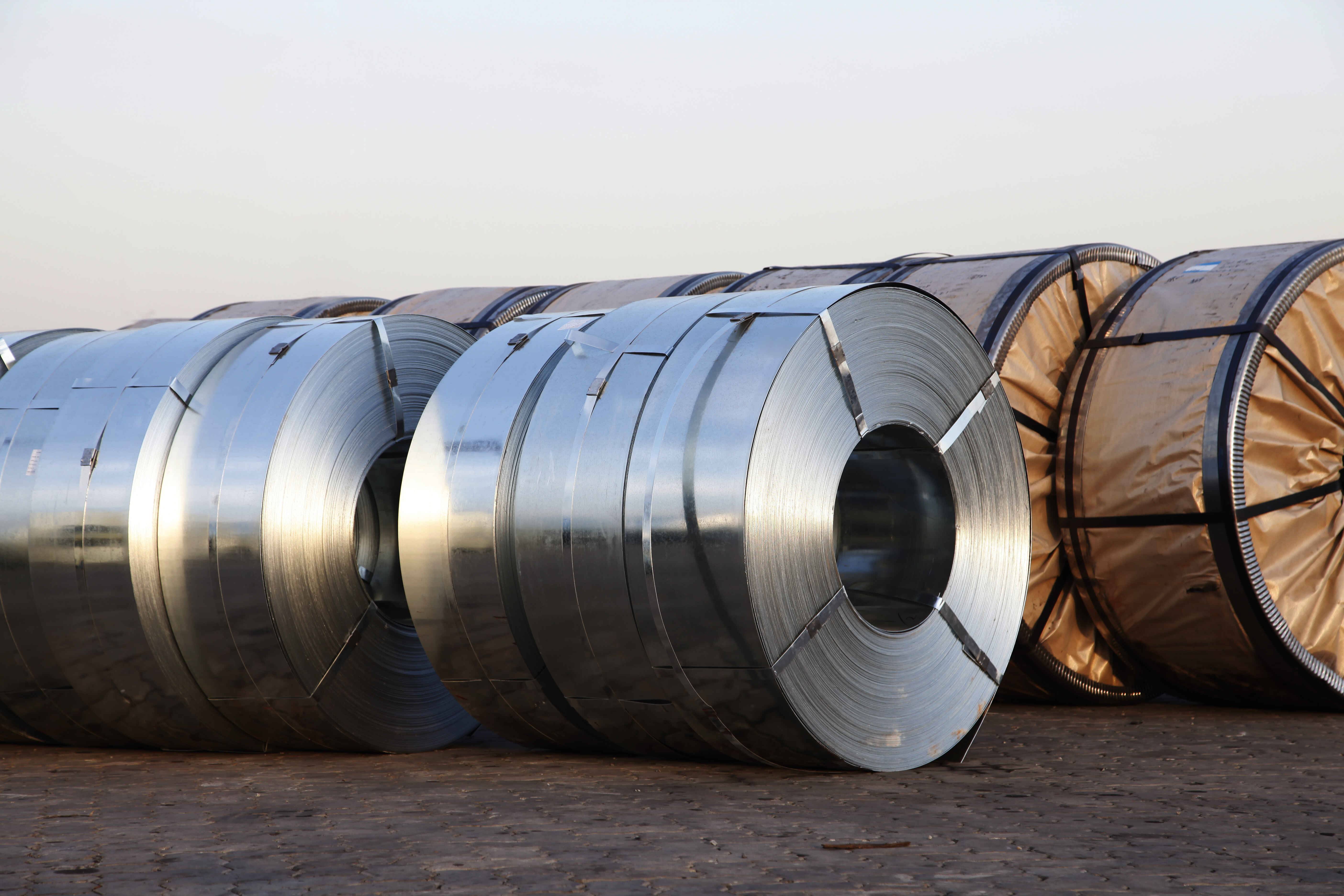
What Makes Cold Rolled Steel Stronger Than Regular Steel What Makes Cold Rolled Steel Stronger Than Regular Steel
Steel sheets come in a plethora of forms and varieties. Among the most prevalent classifications is based on the temperature at which they roll. Cold-rolled steel is one of the rolling processes, and it is further classified into products such as cold-rolled steel sheets, cold-rolled steel plate, cold-pressed steel, and others.

Why Go Lean - your questions answered Why Go Lean - your questions answered
The future of manufacturing is Lean. Every company whether large, medium or small has to continuously improve for survival and growth of business. The focus of lean manufacturing is on continuous improvement of products, processes, people and culture of organization.
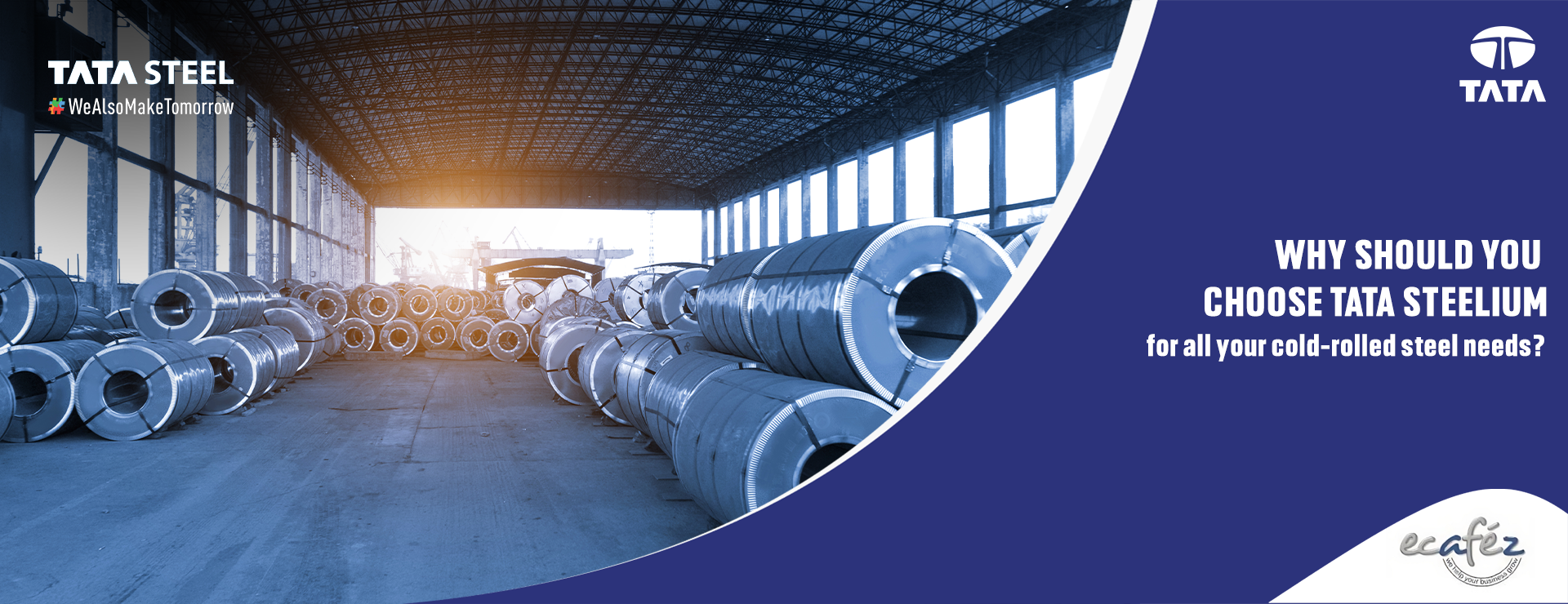
Why should you Choose Tata Steelium for all your cold rolled steel needs? Why should you Choose Tata Steelium for all your cold rolled steel needs?
In terms of sourcing cold rolled steel for your projects, Tata Steelium emerges as the ultimate solution that provides unmatched quality, reliability, and customizable options
